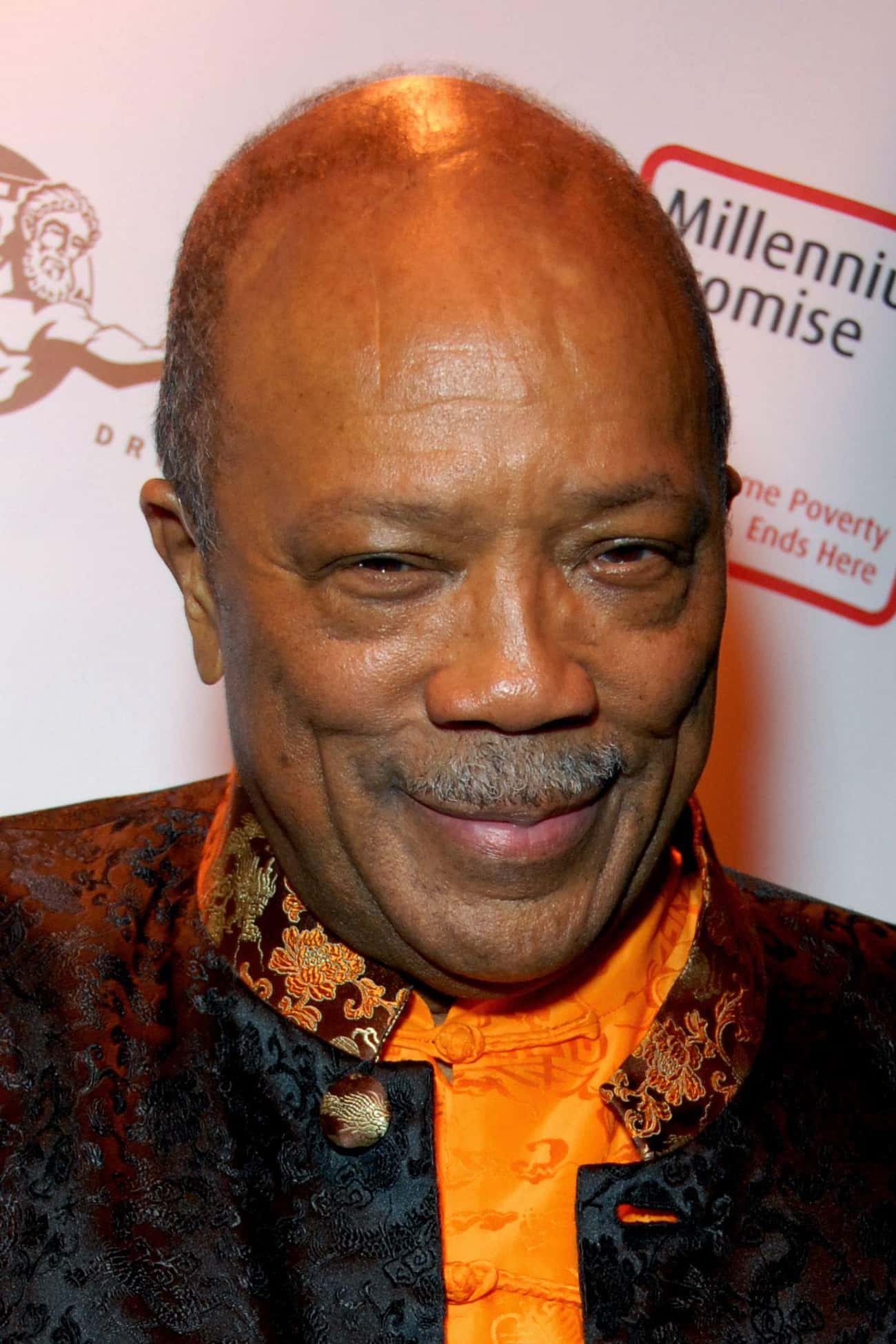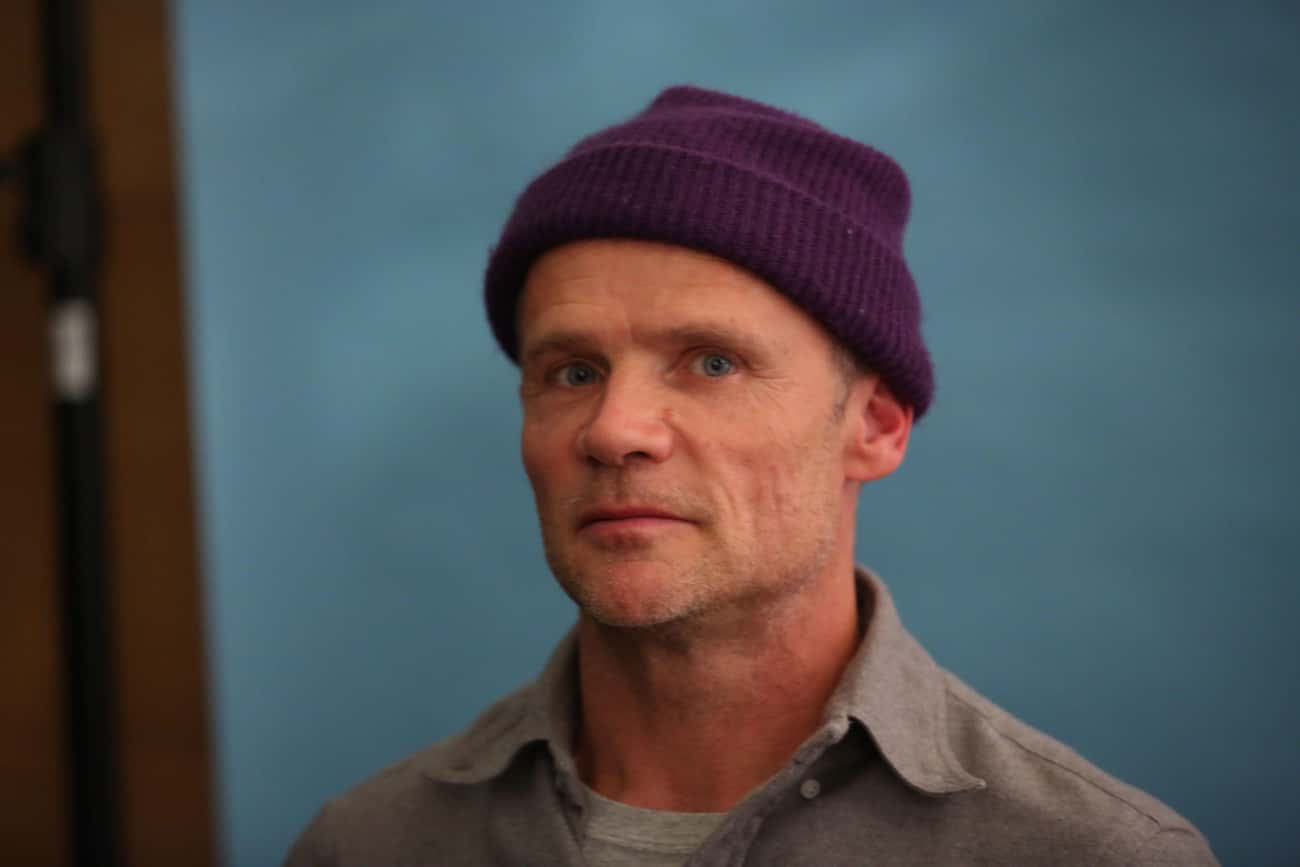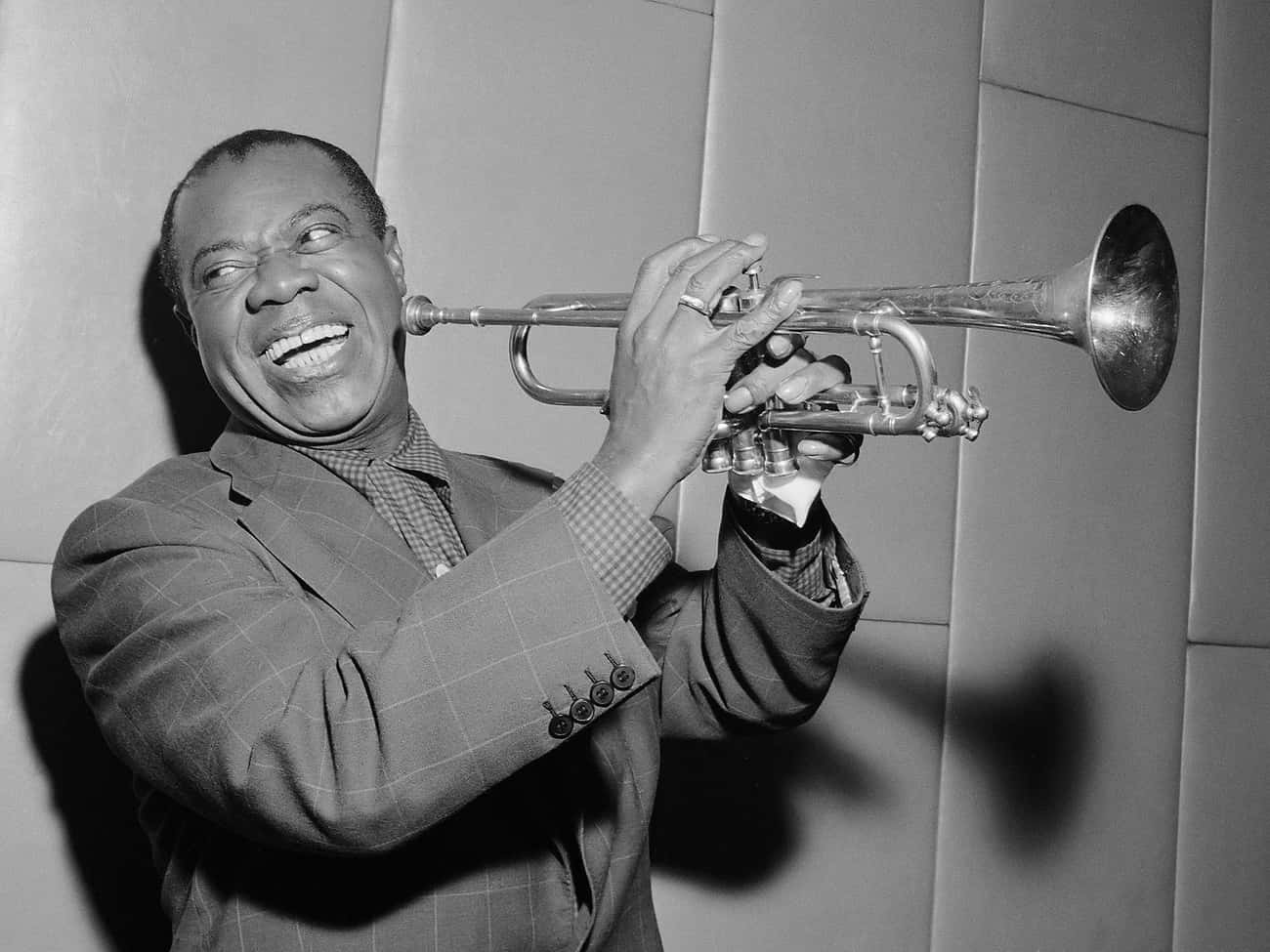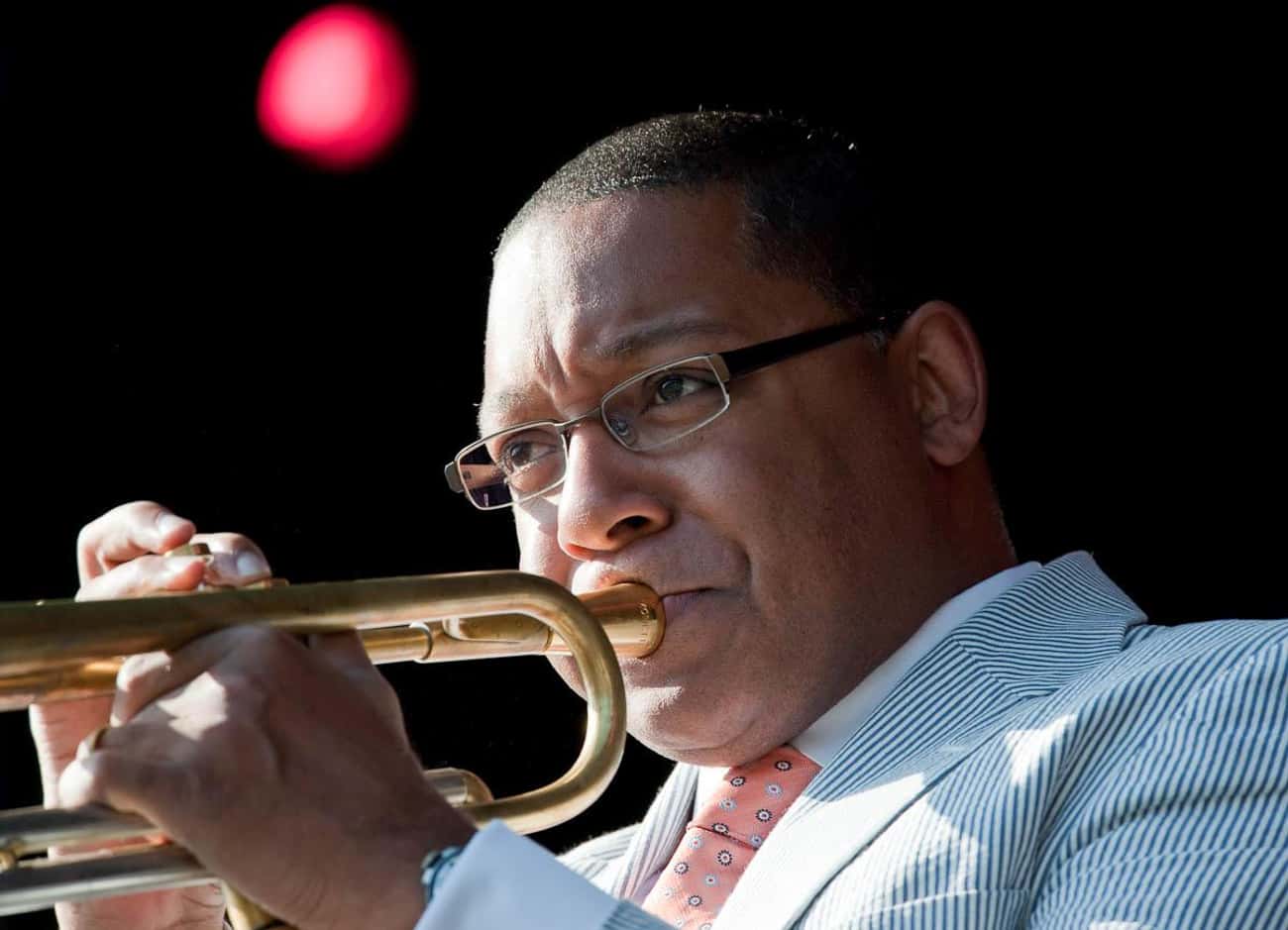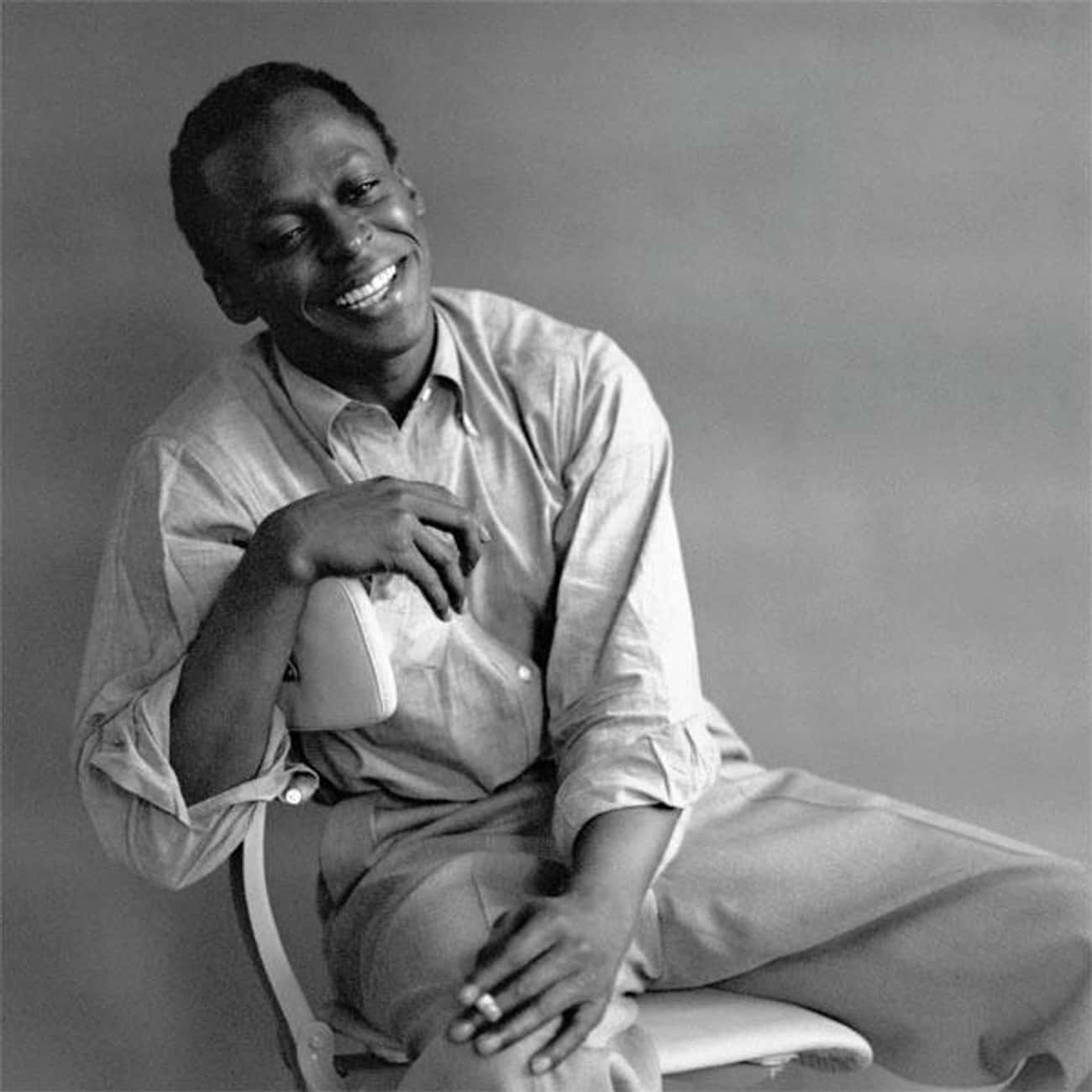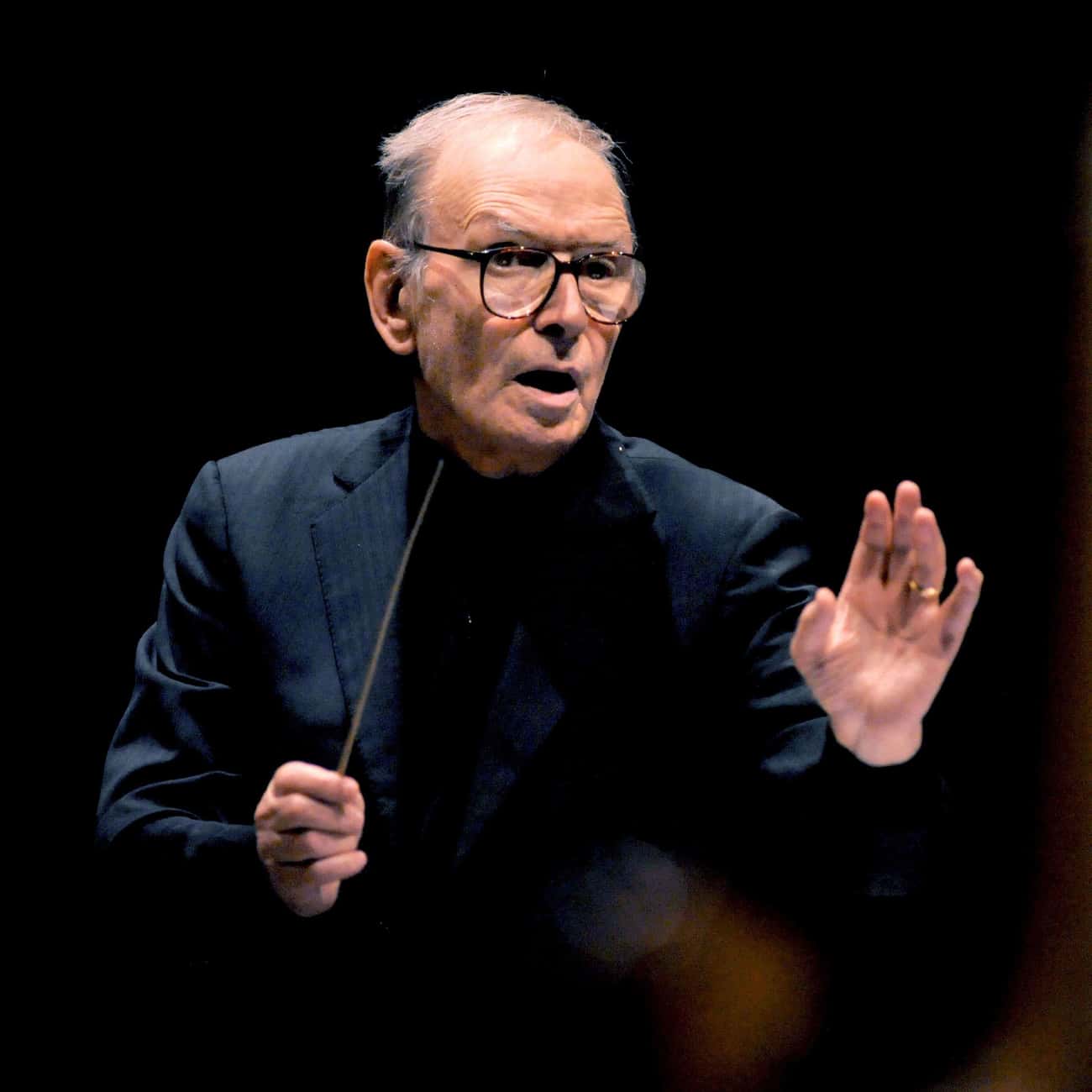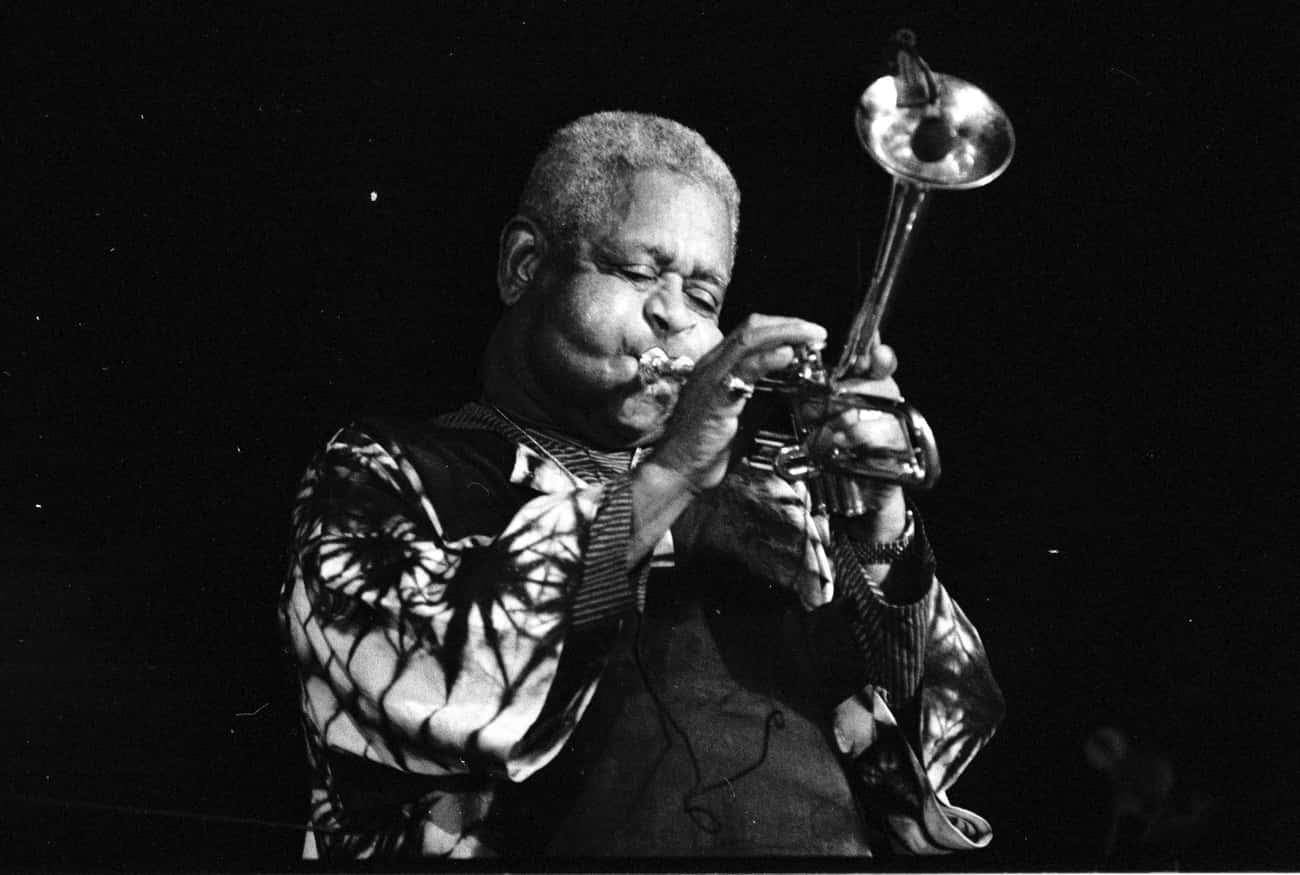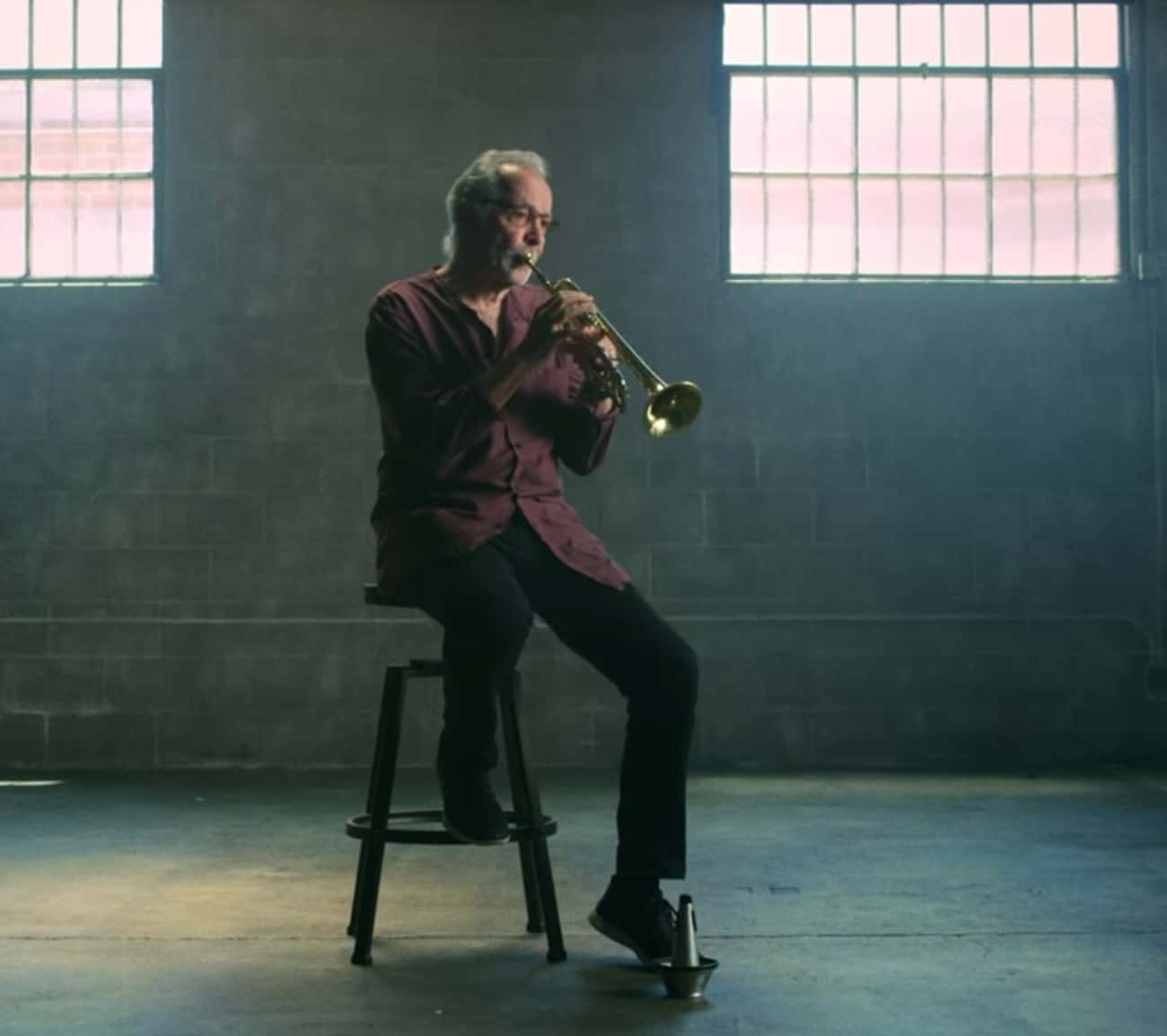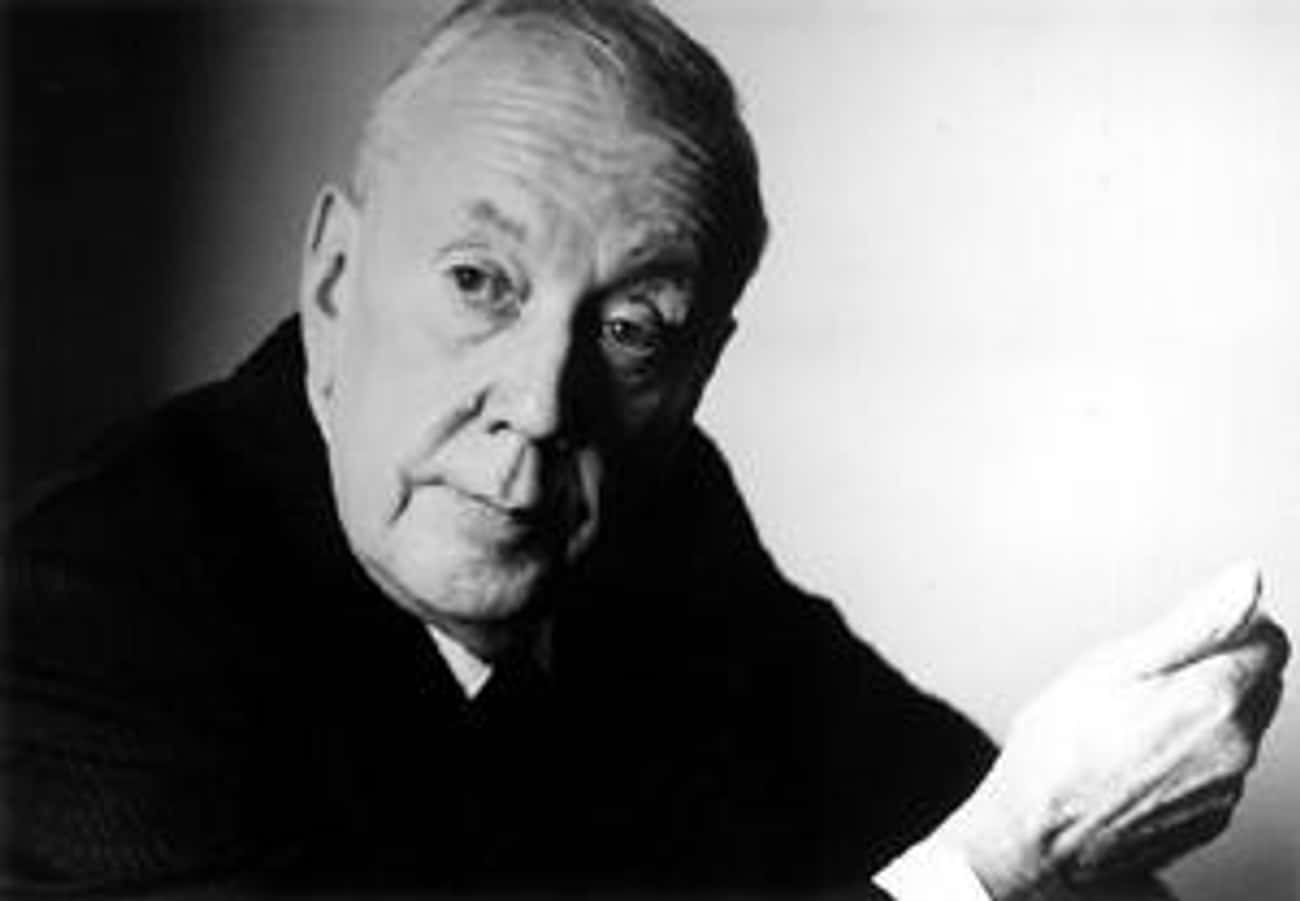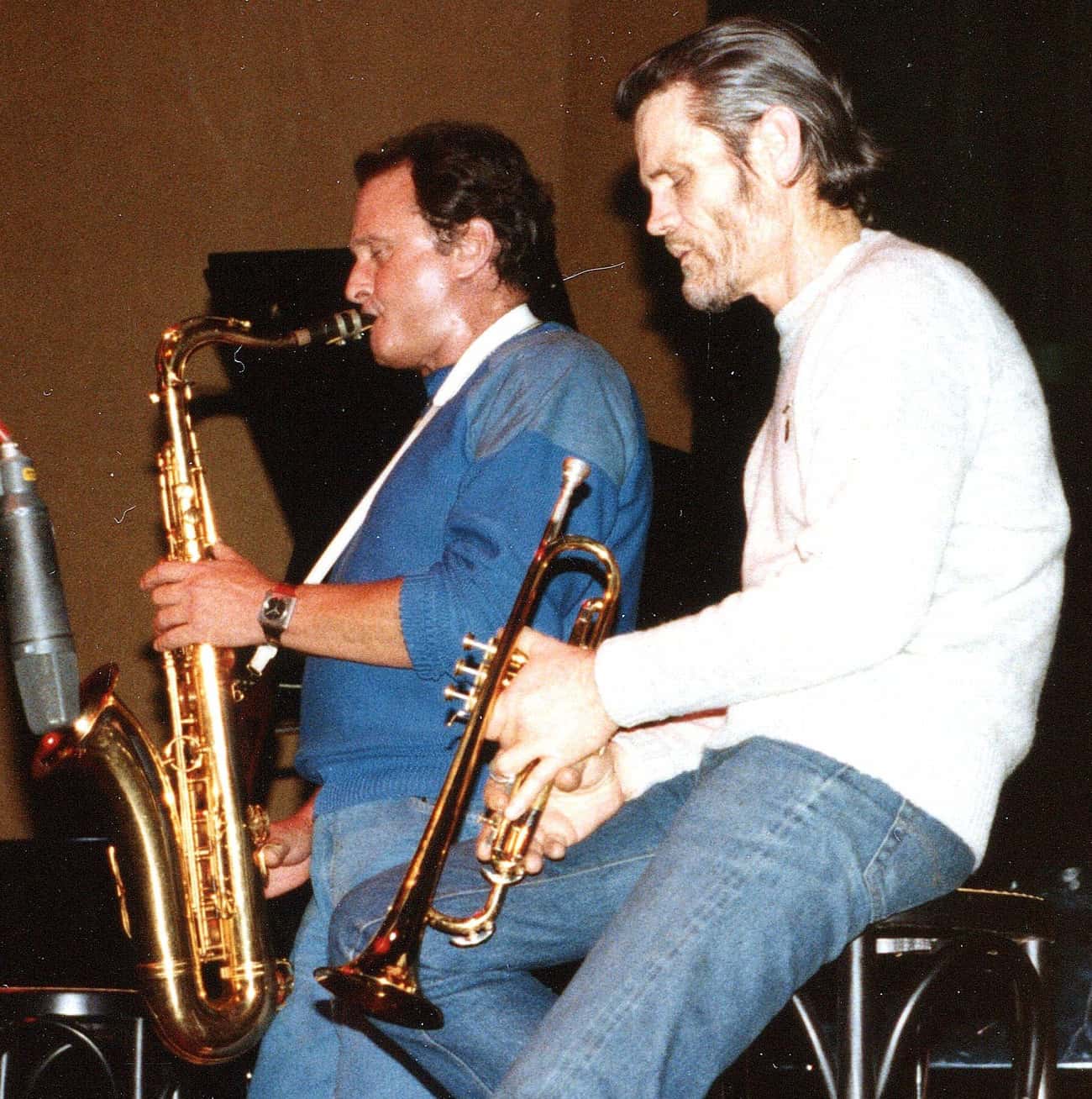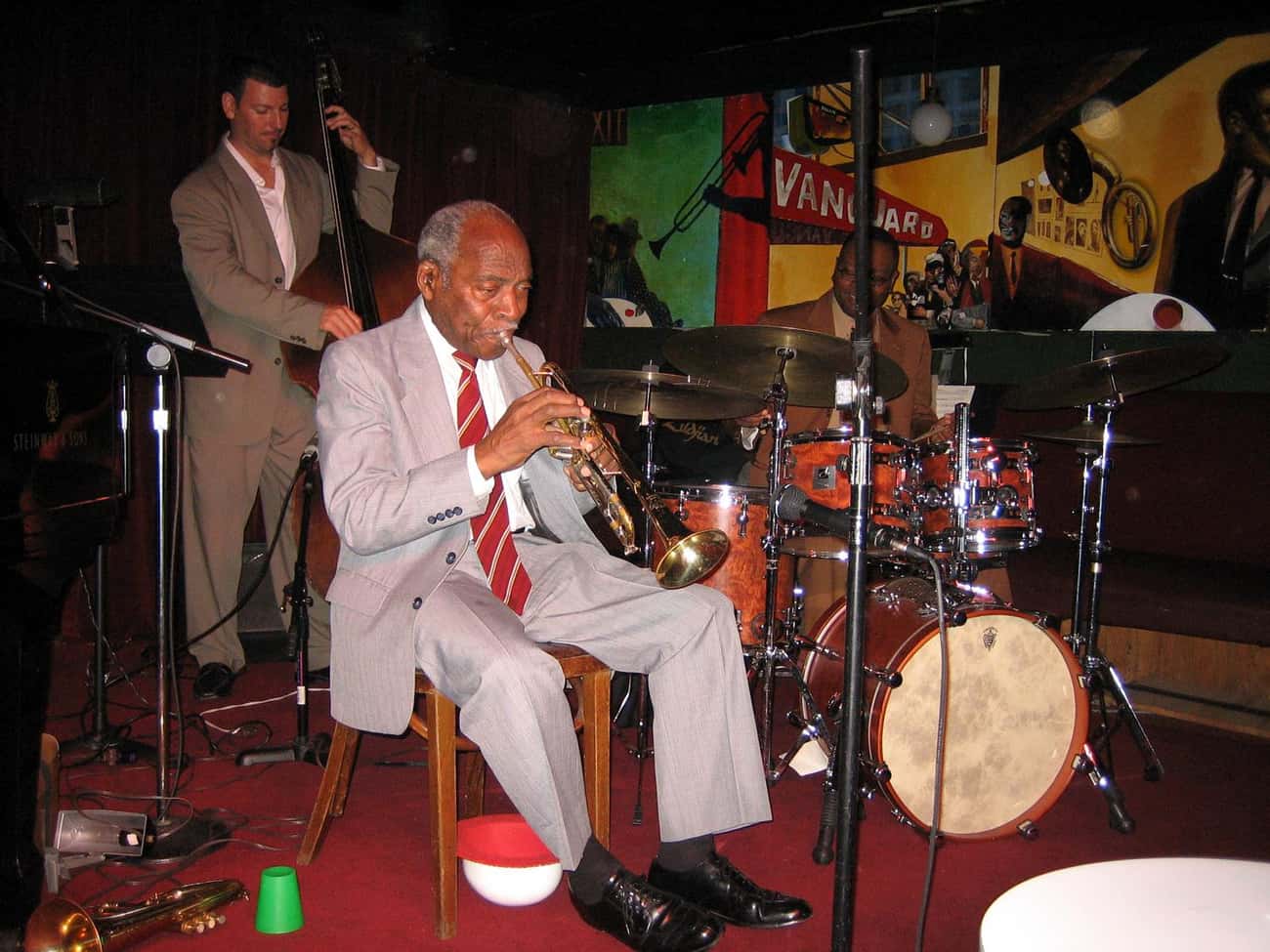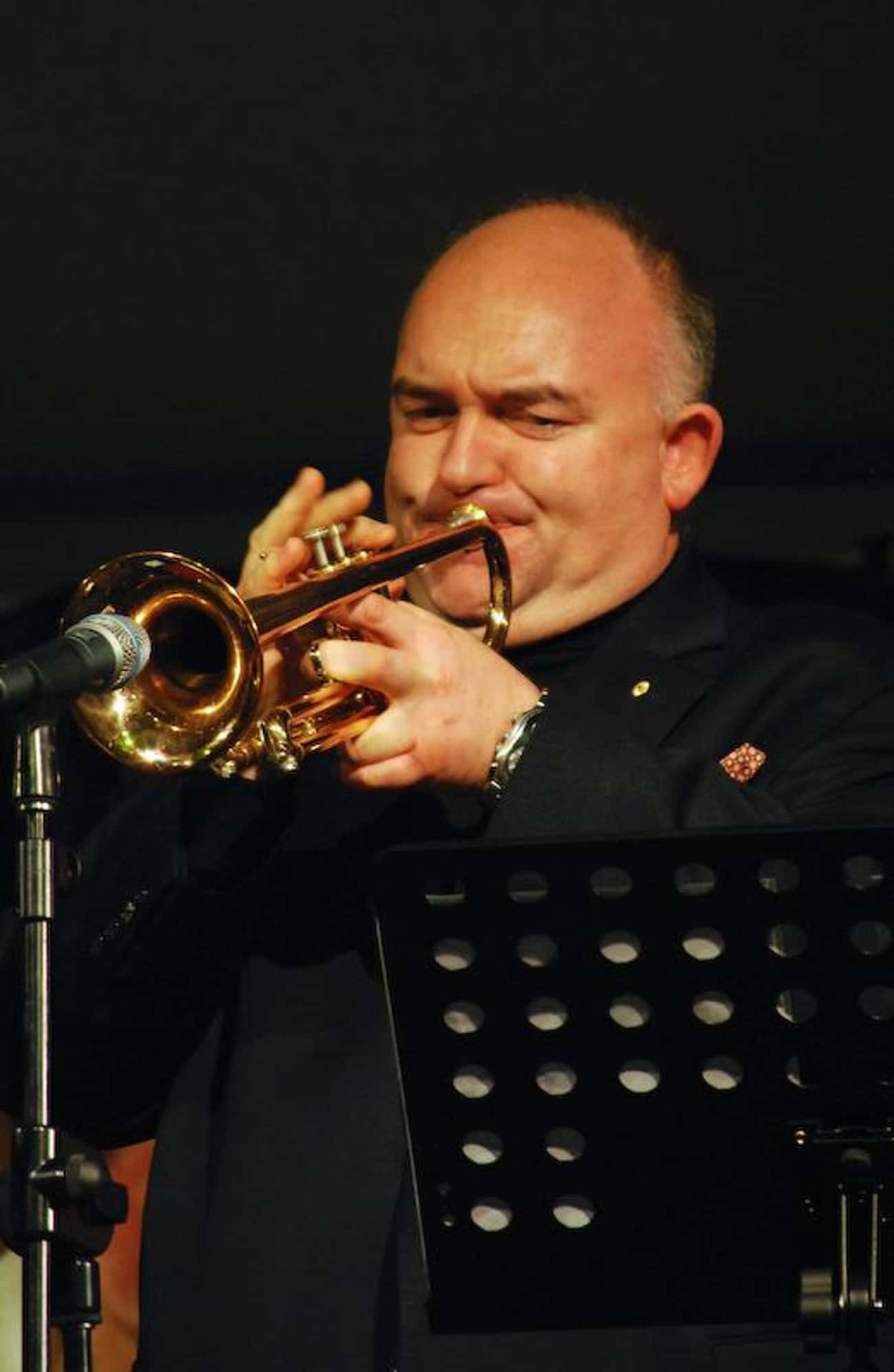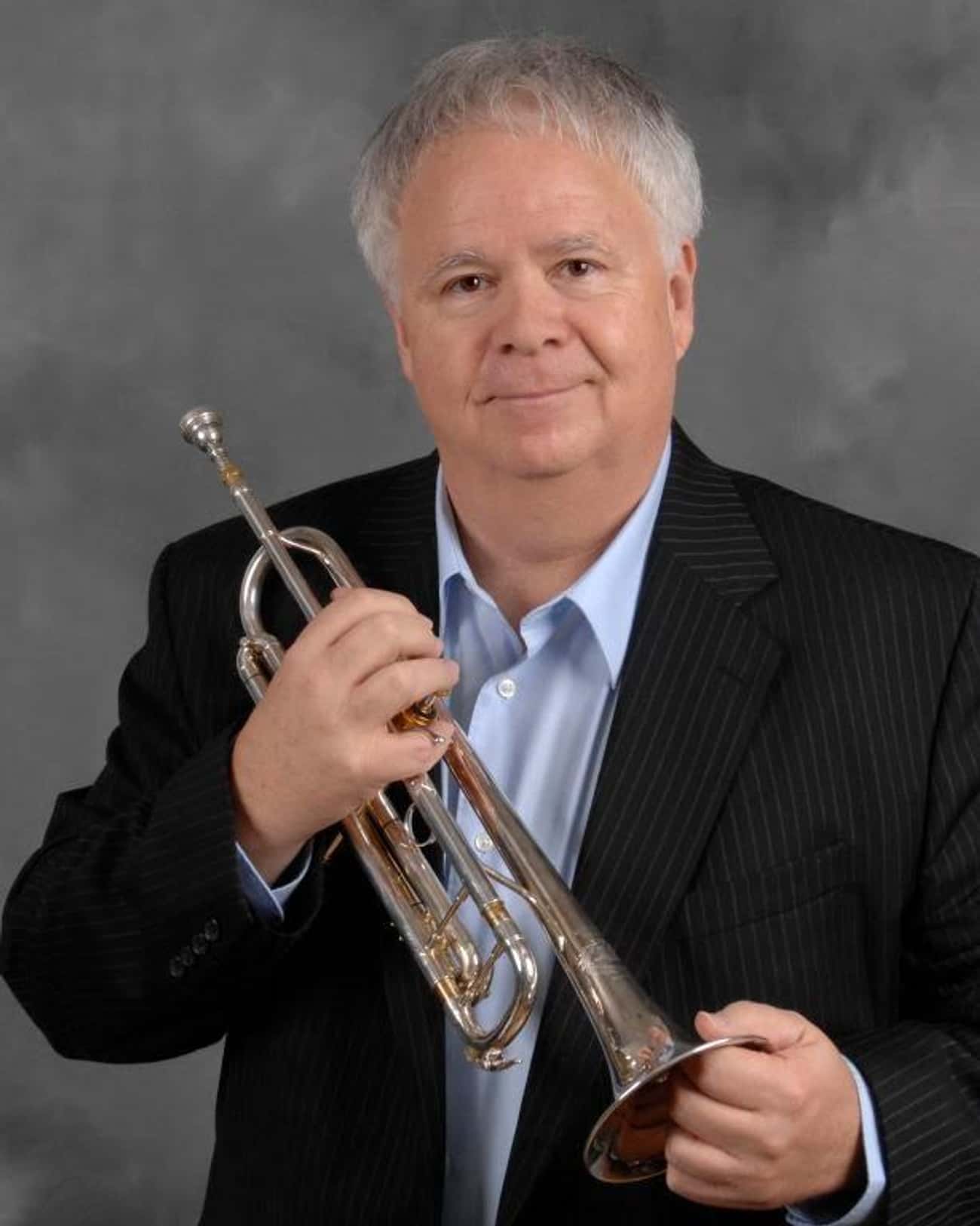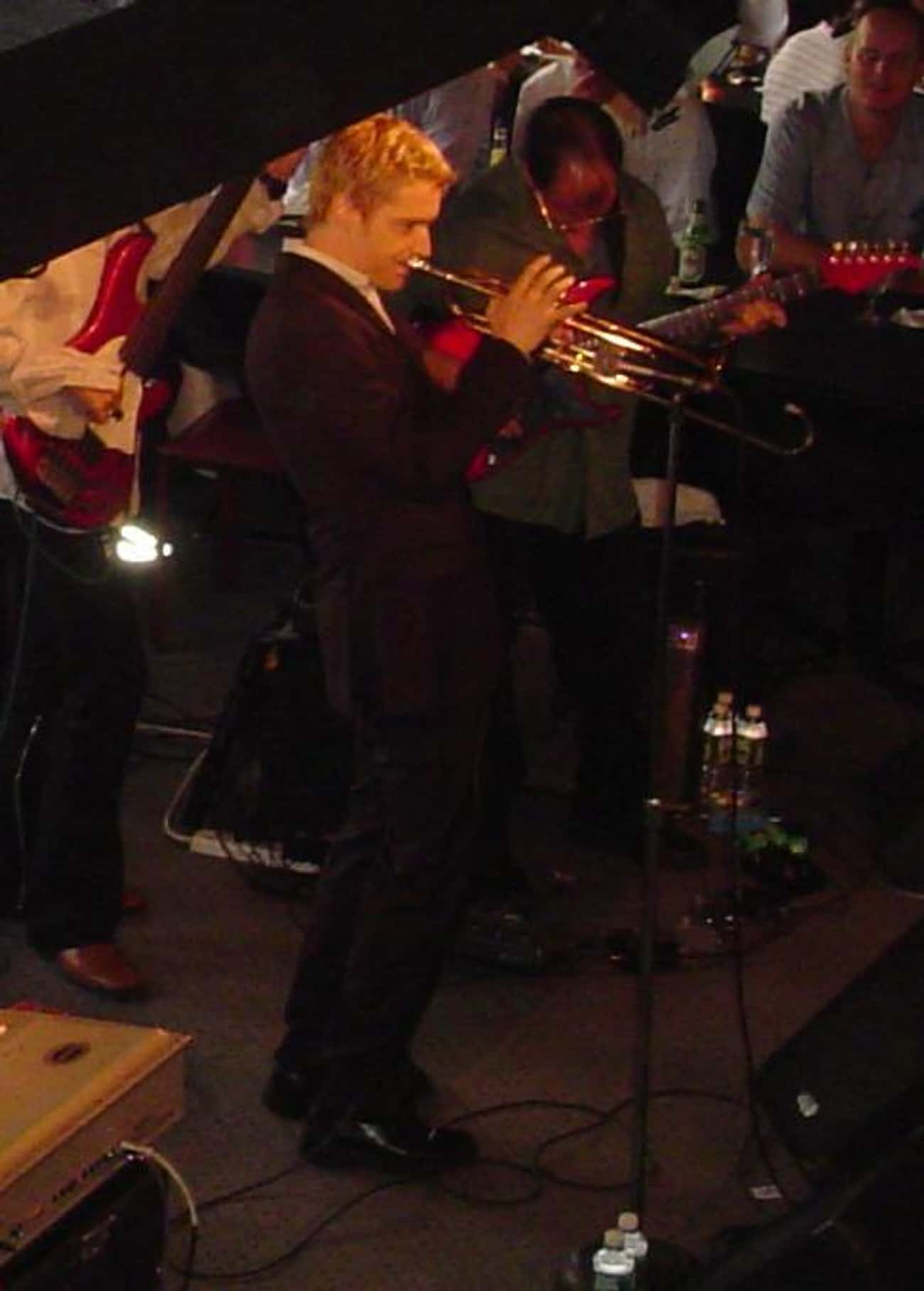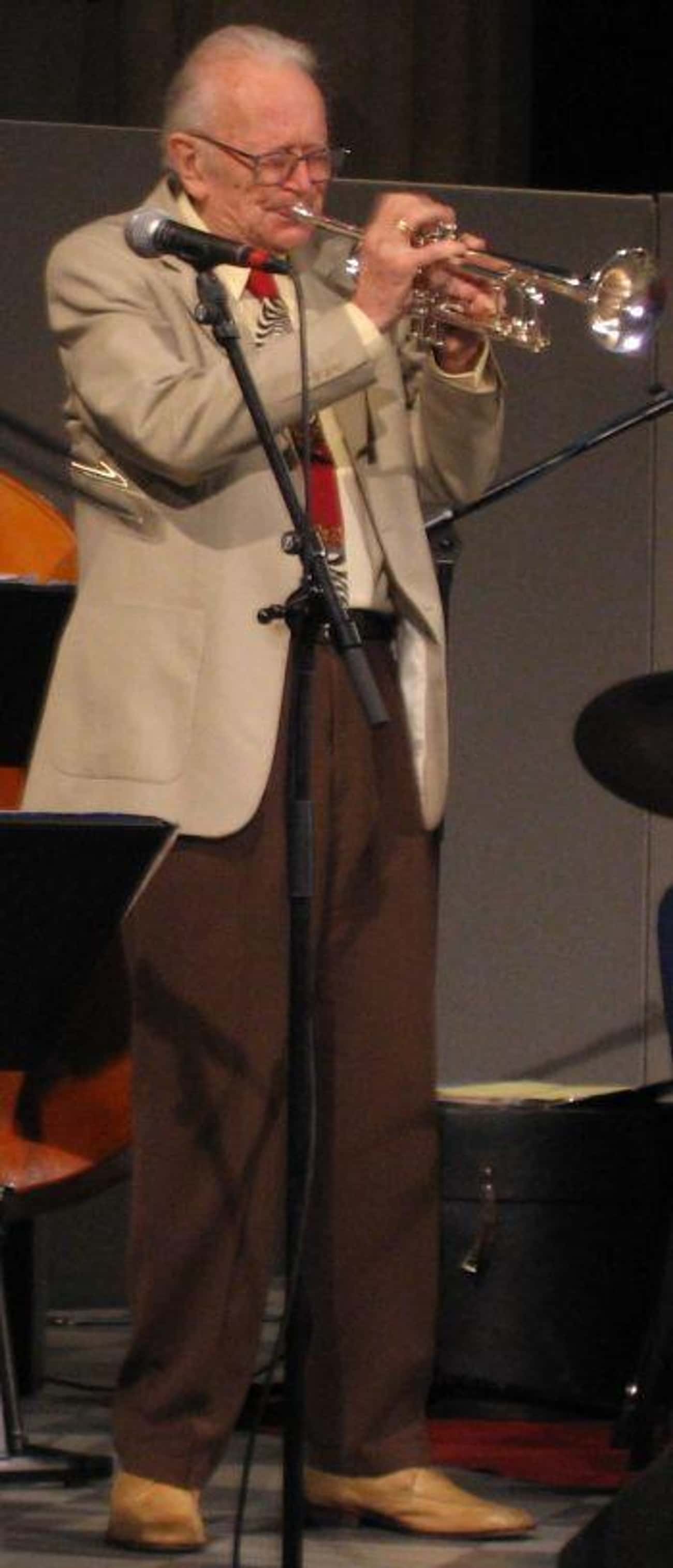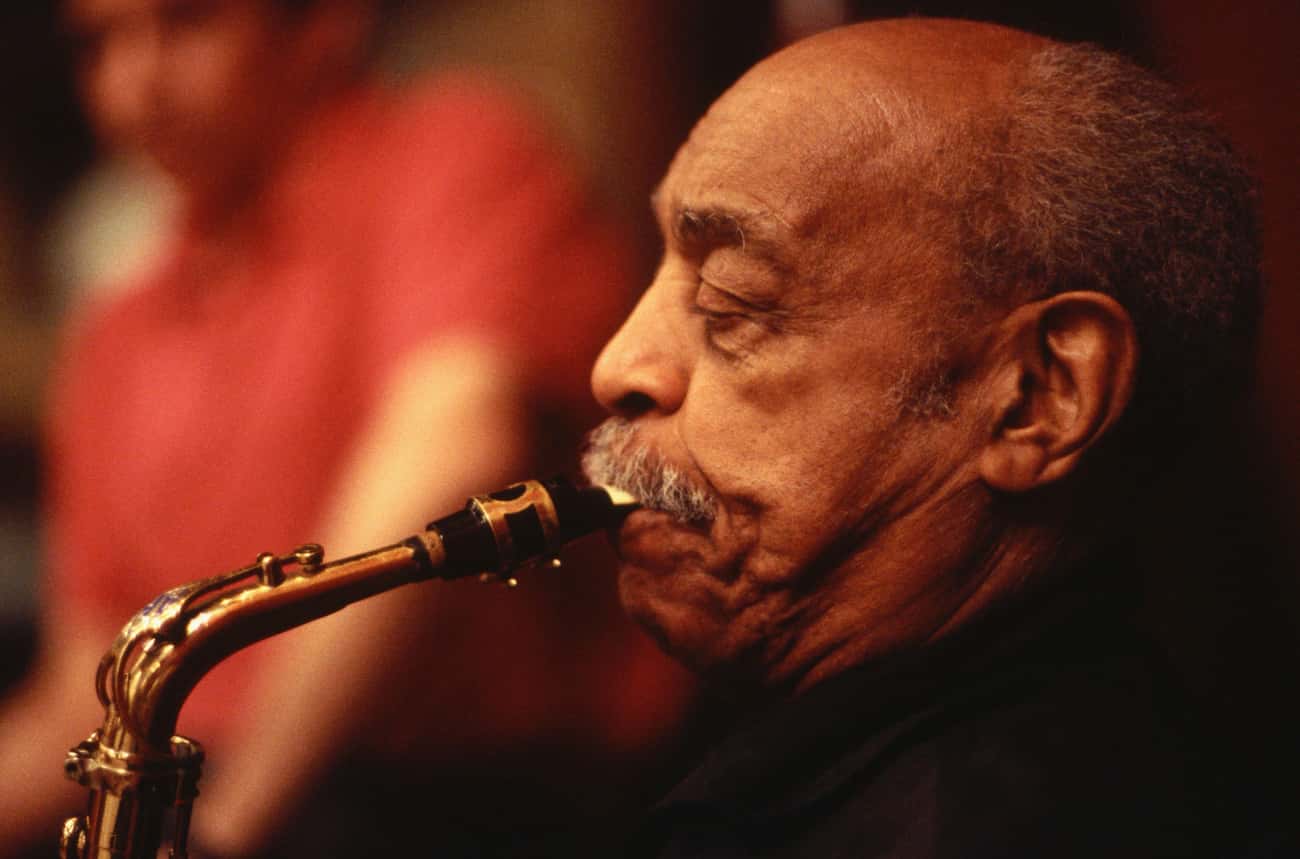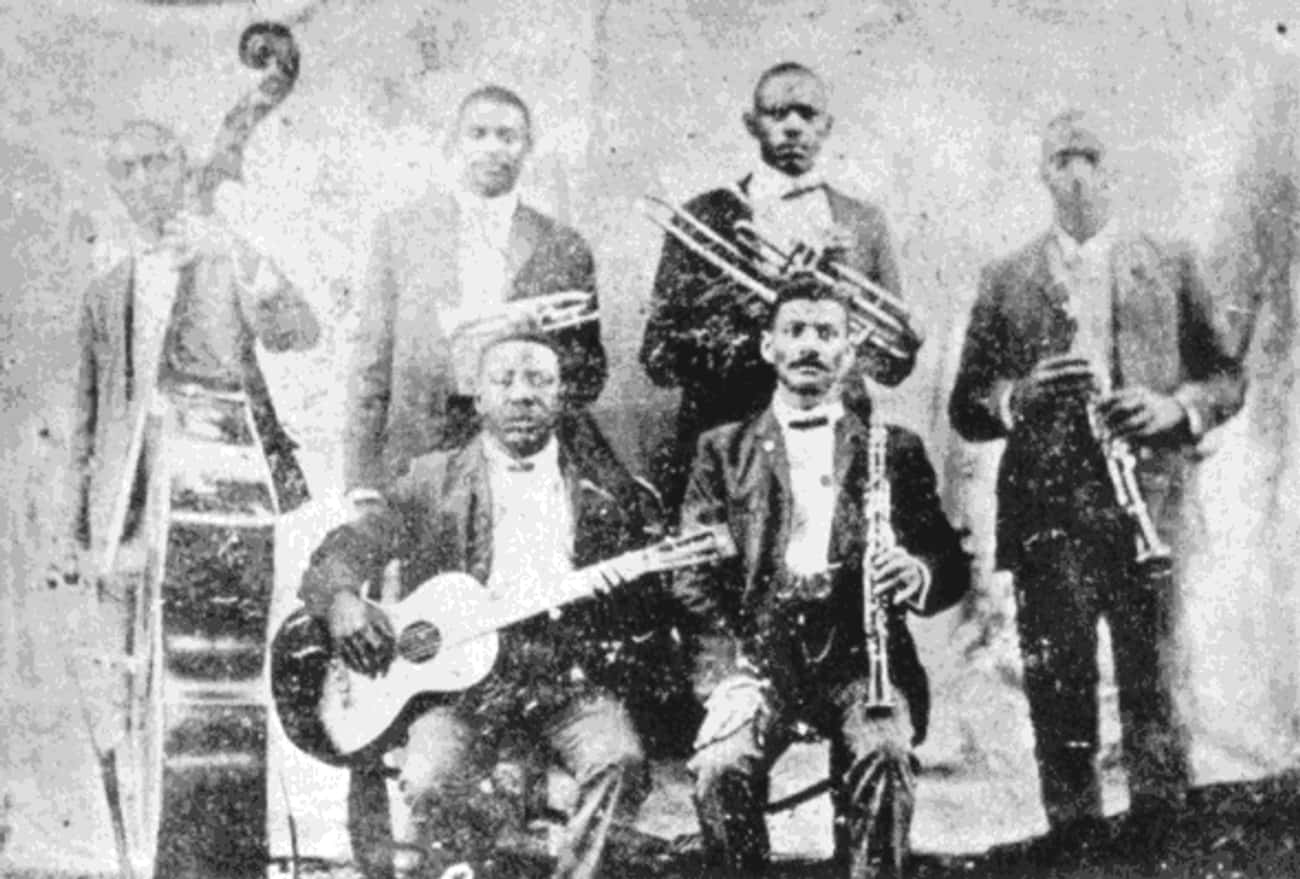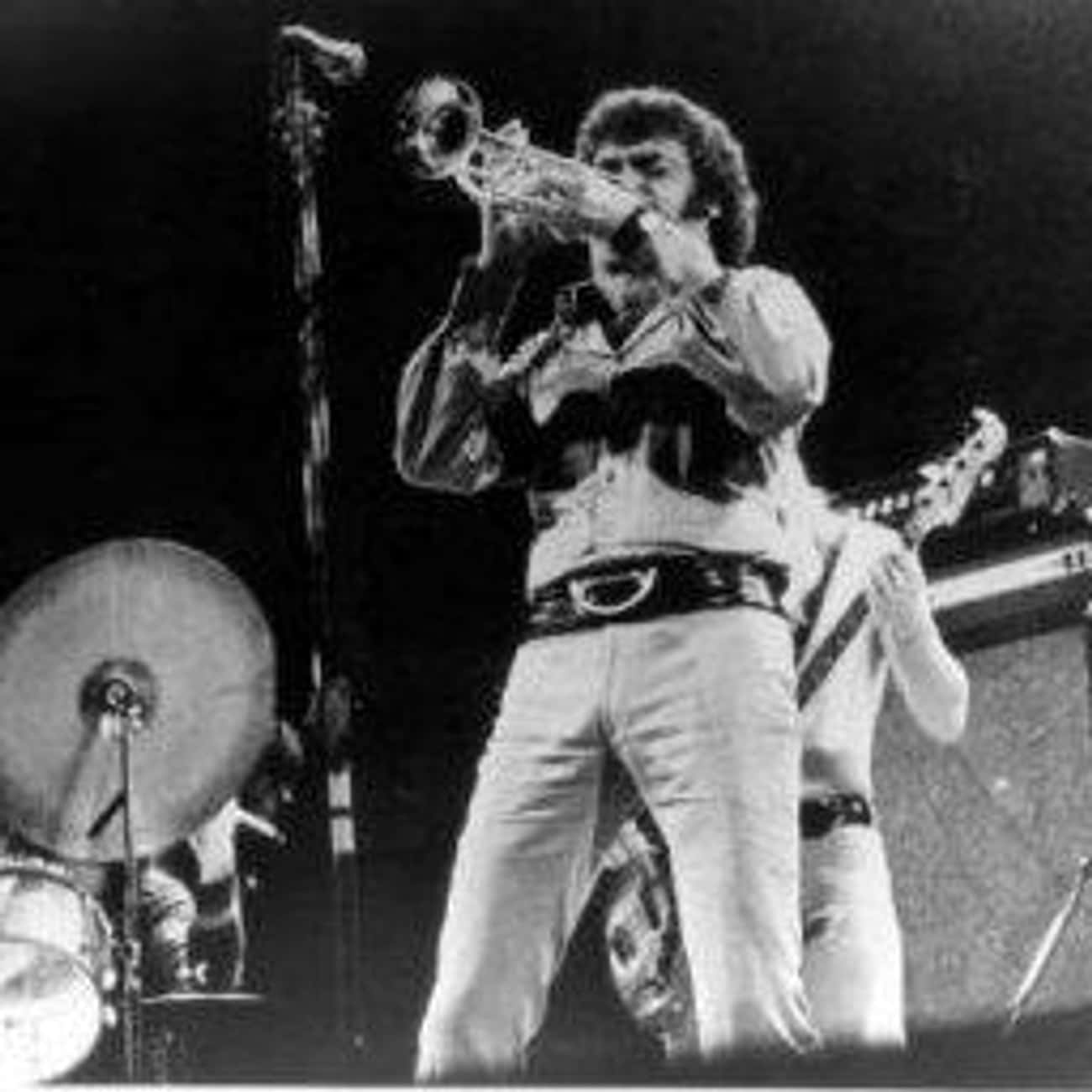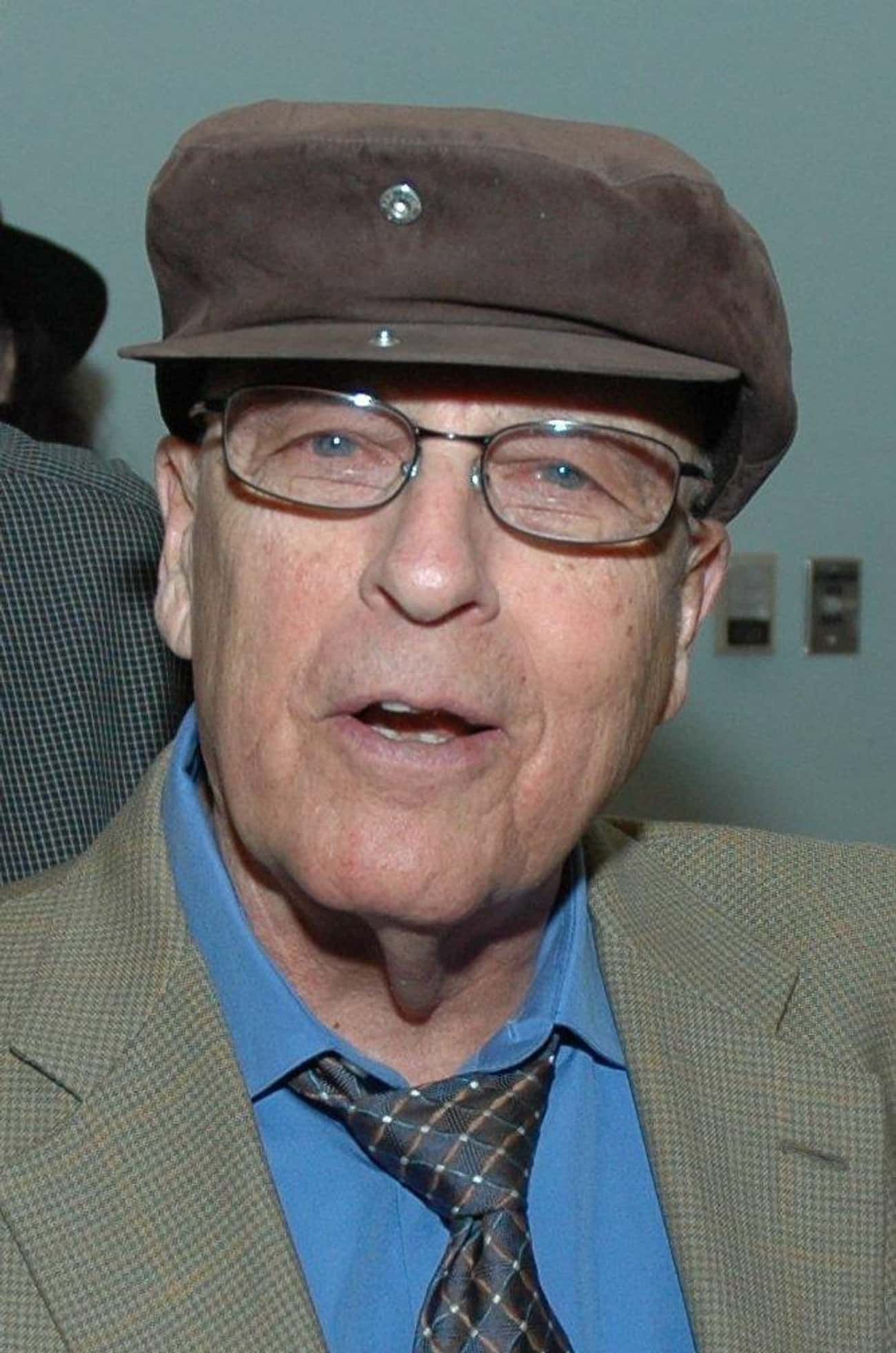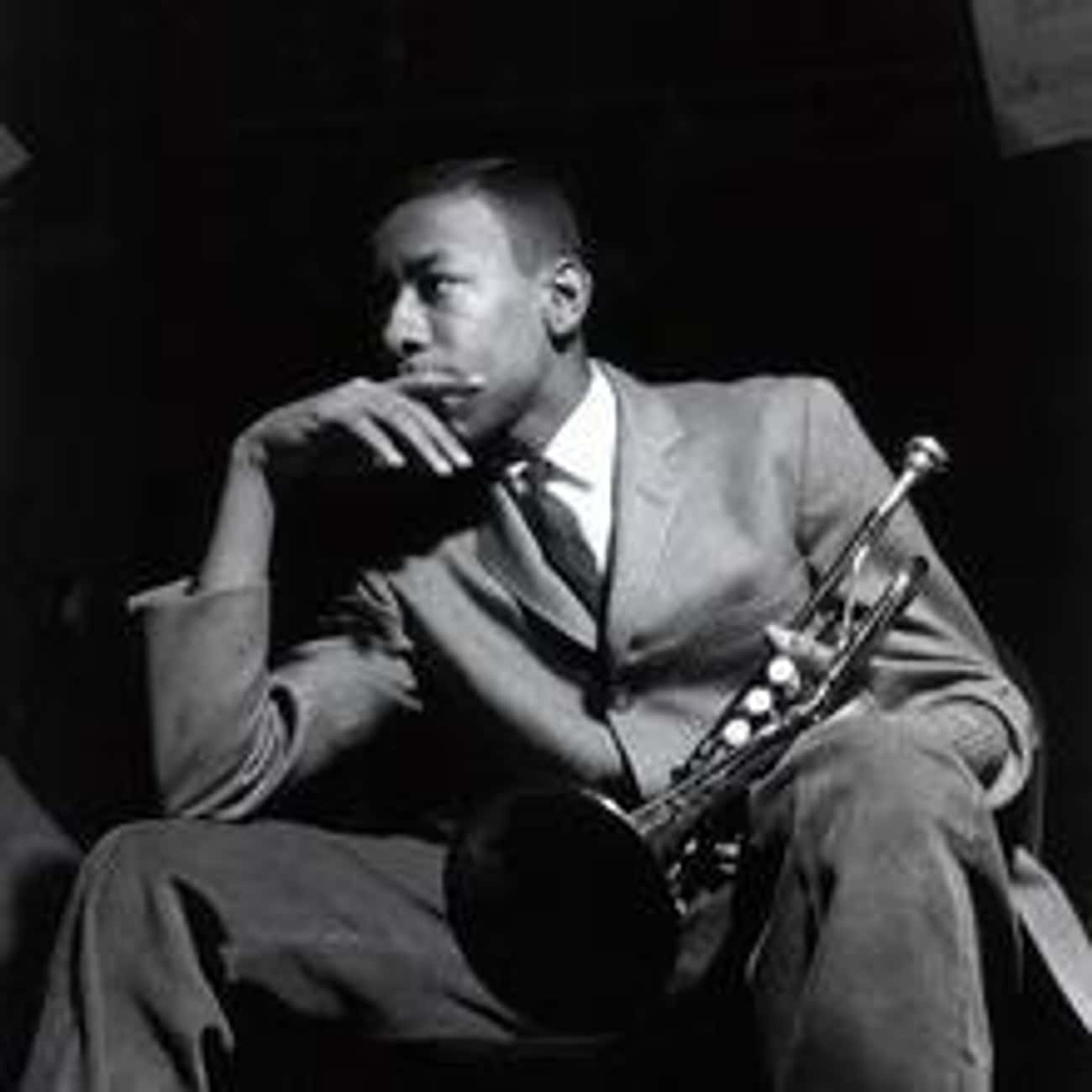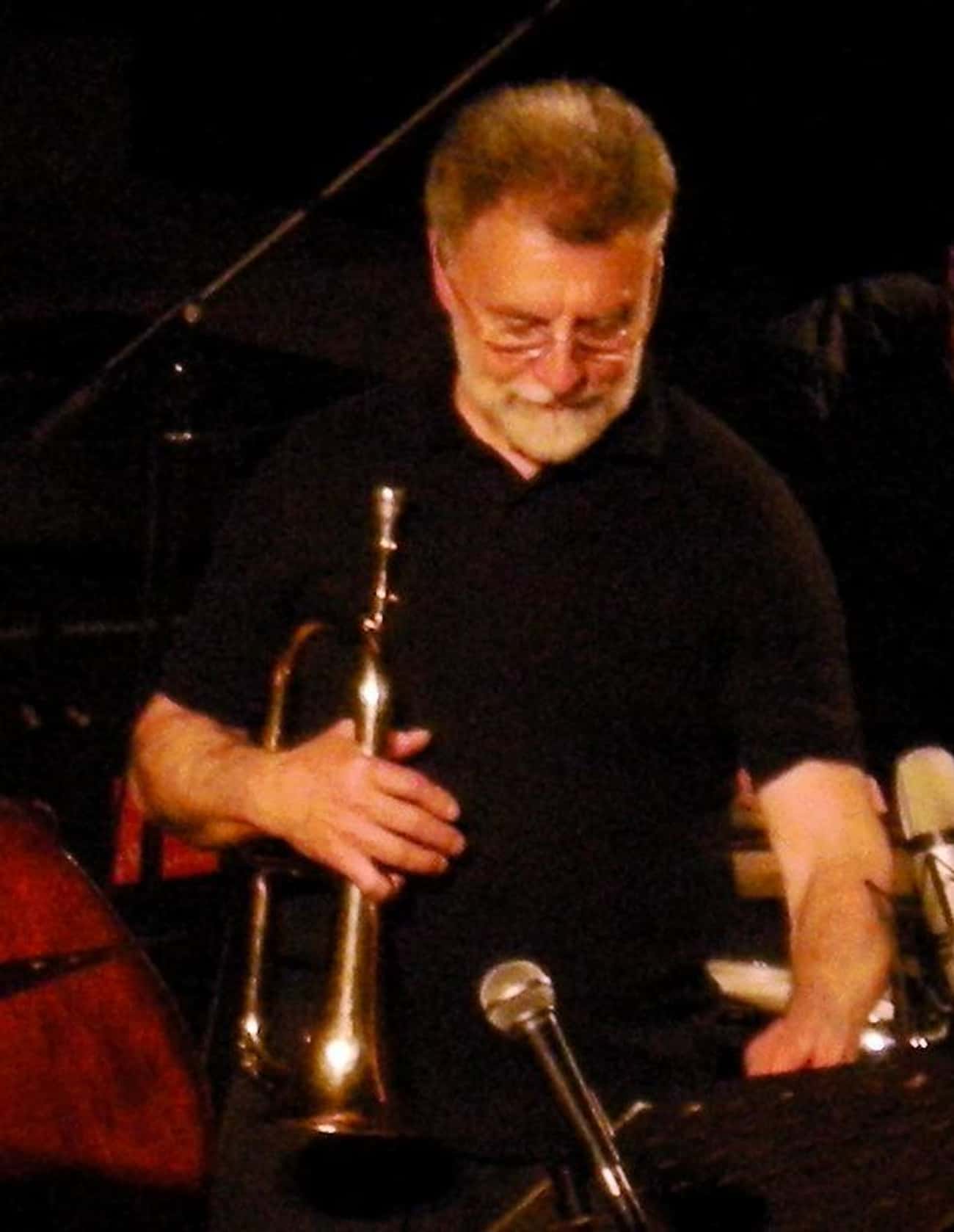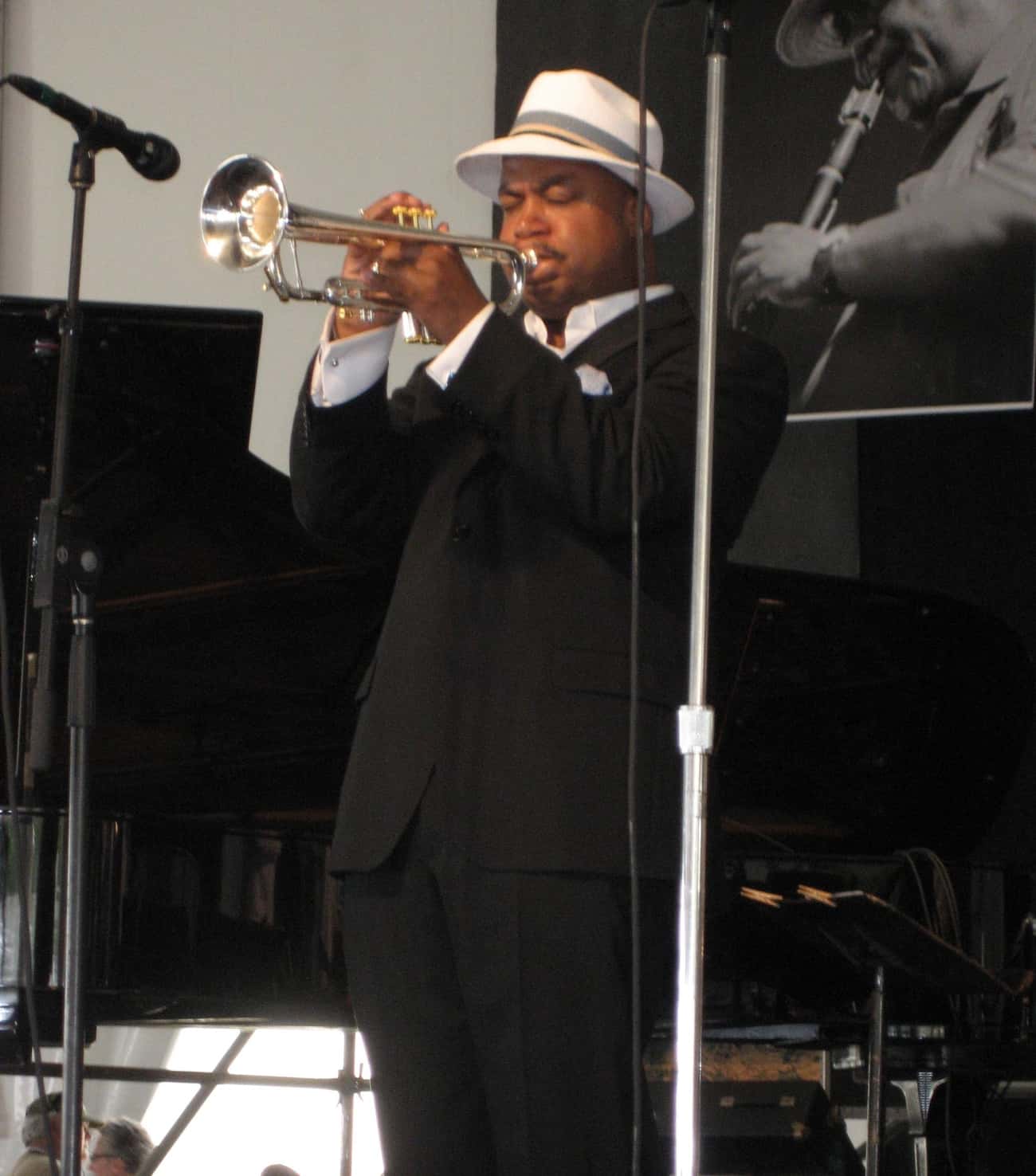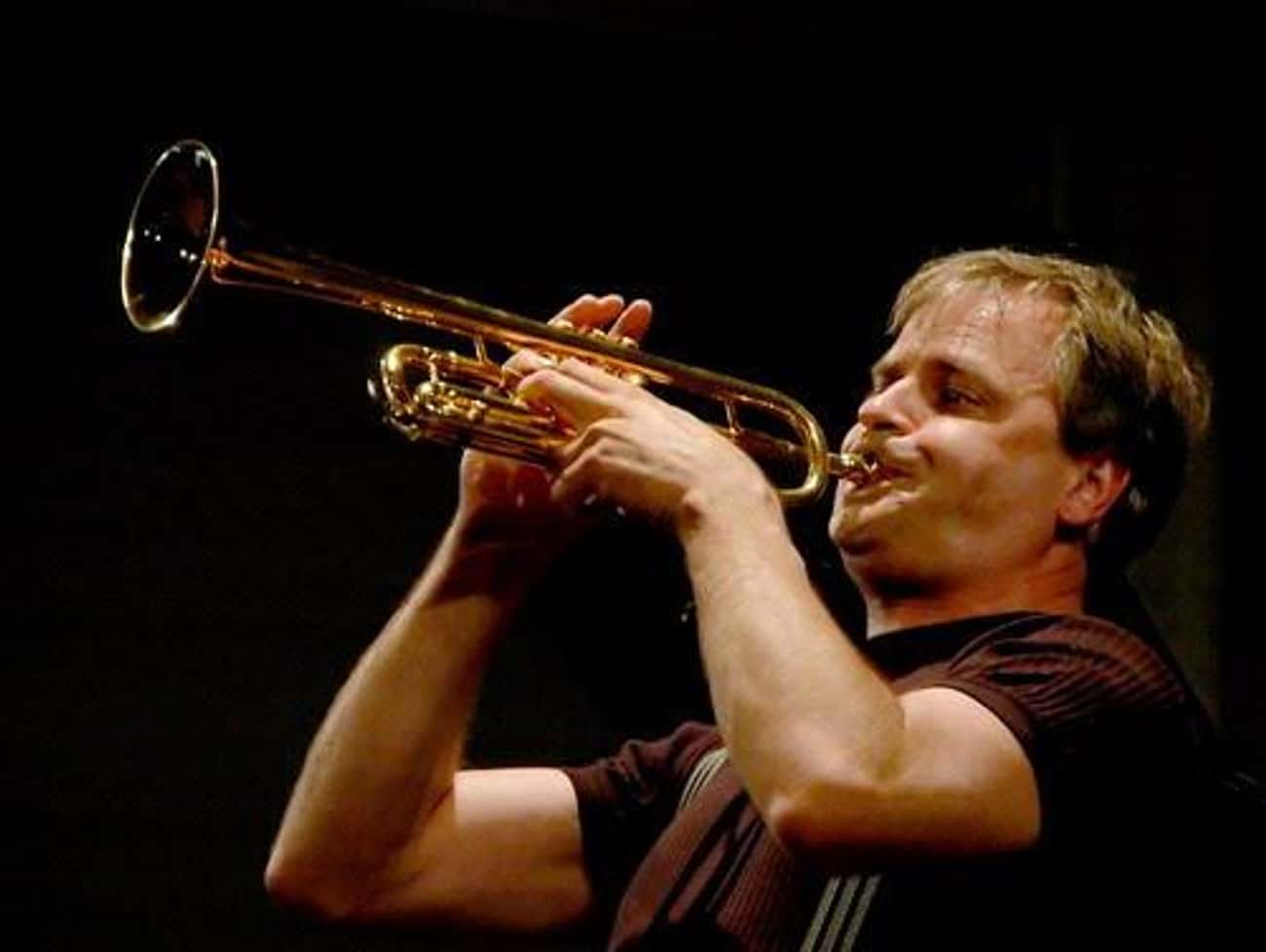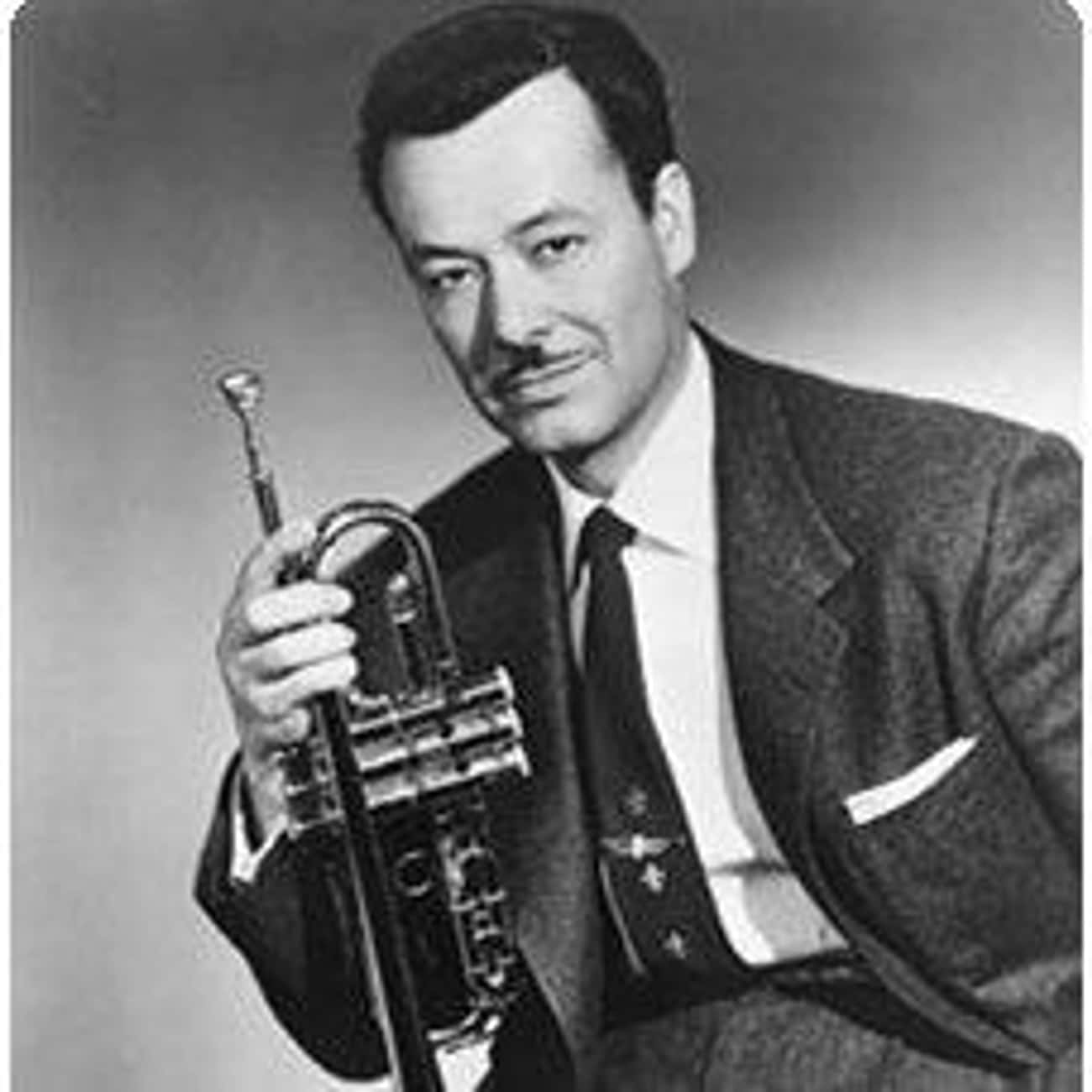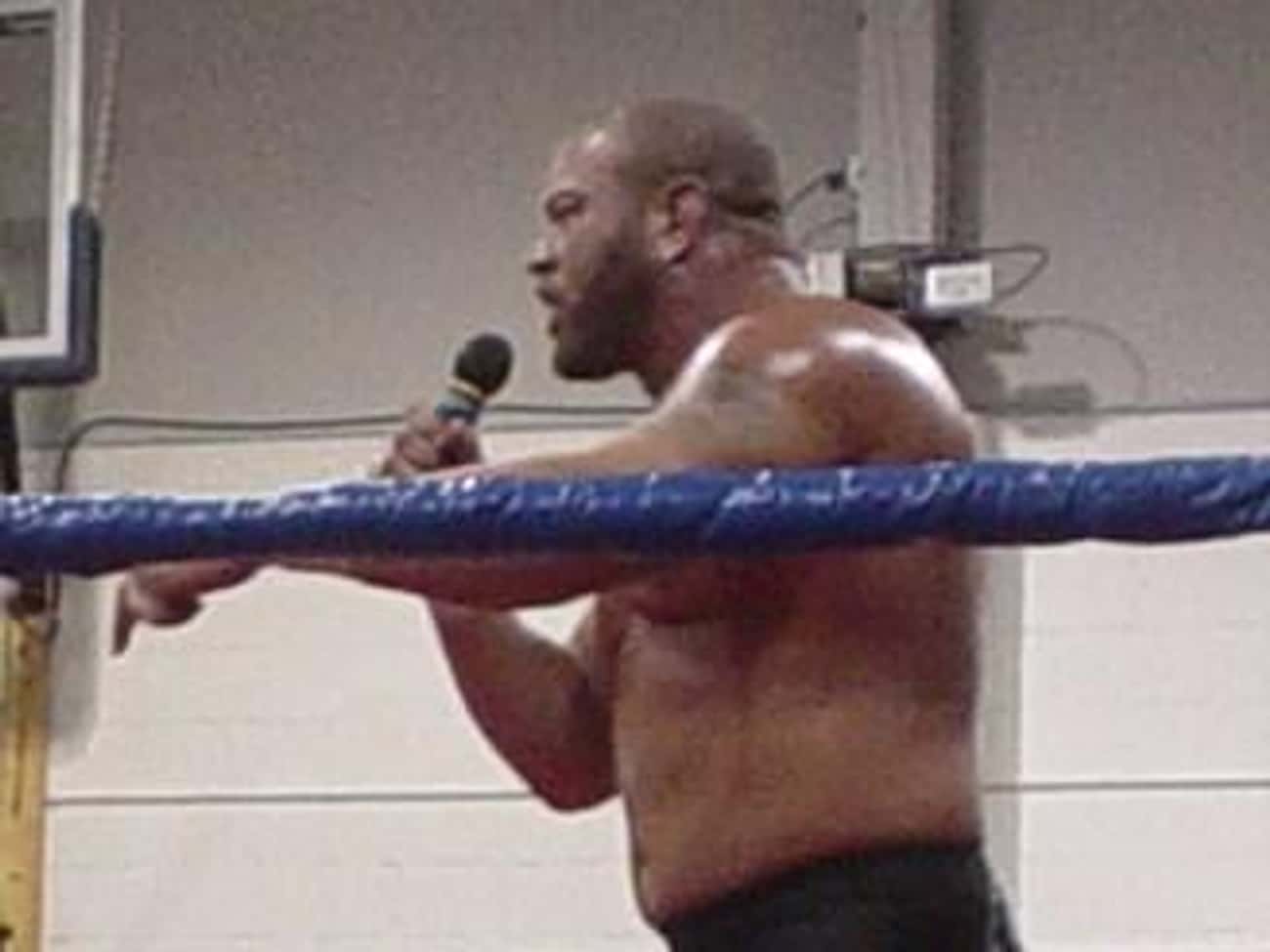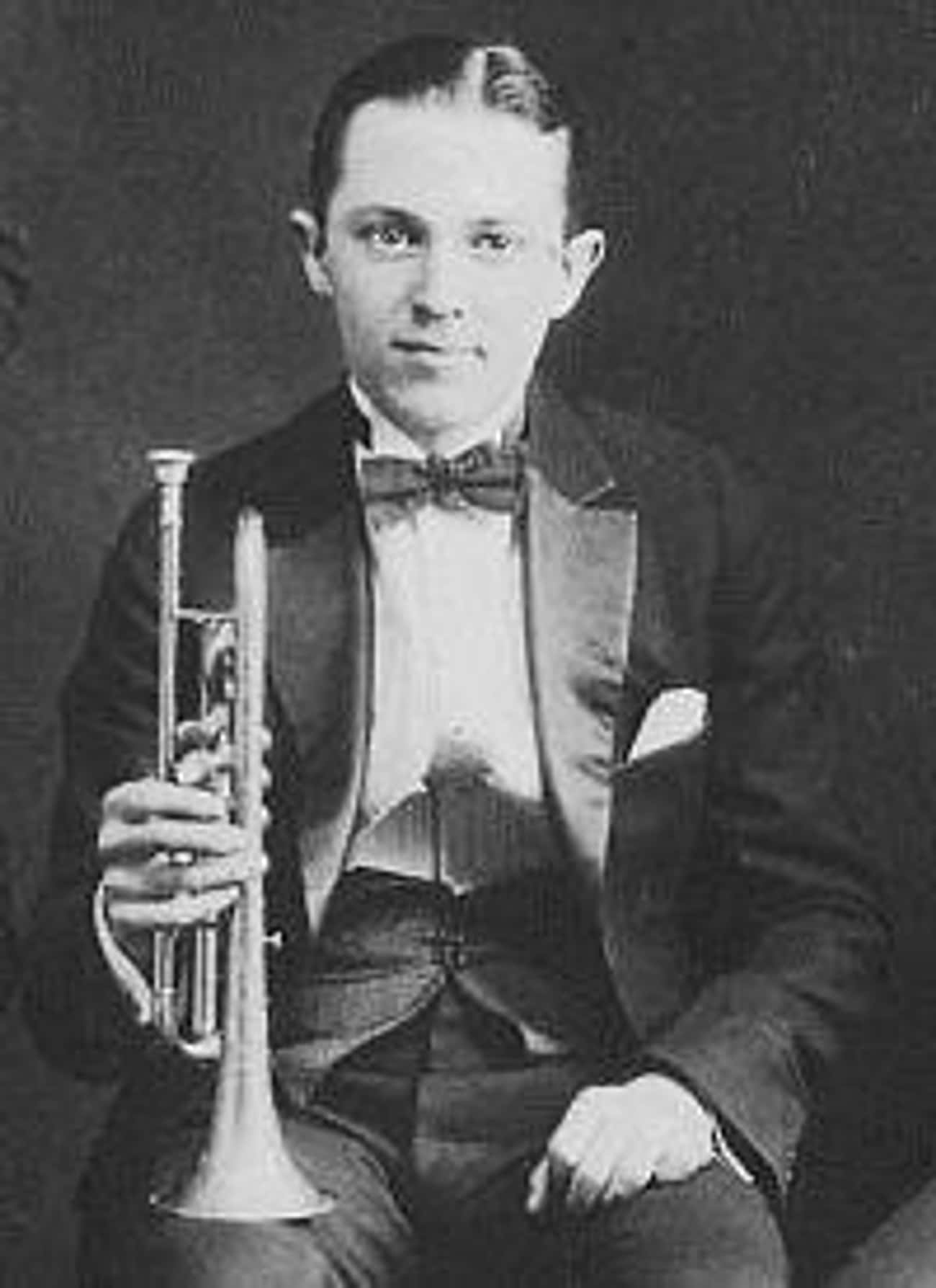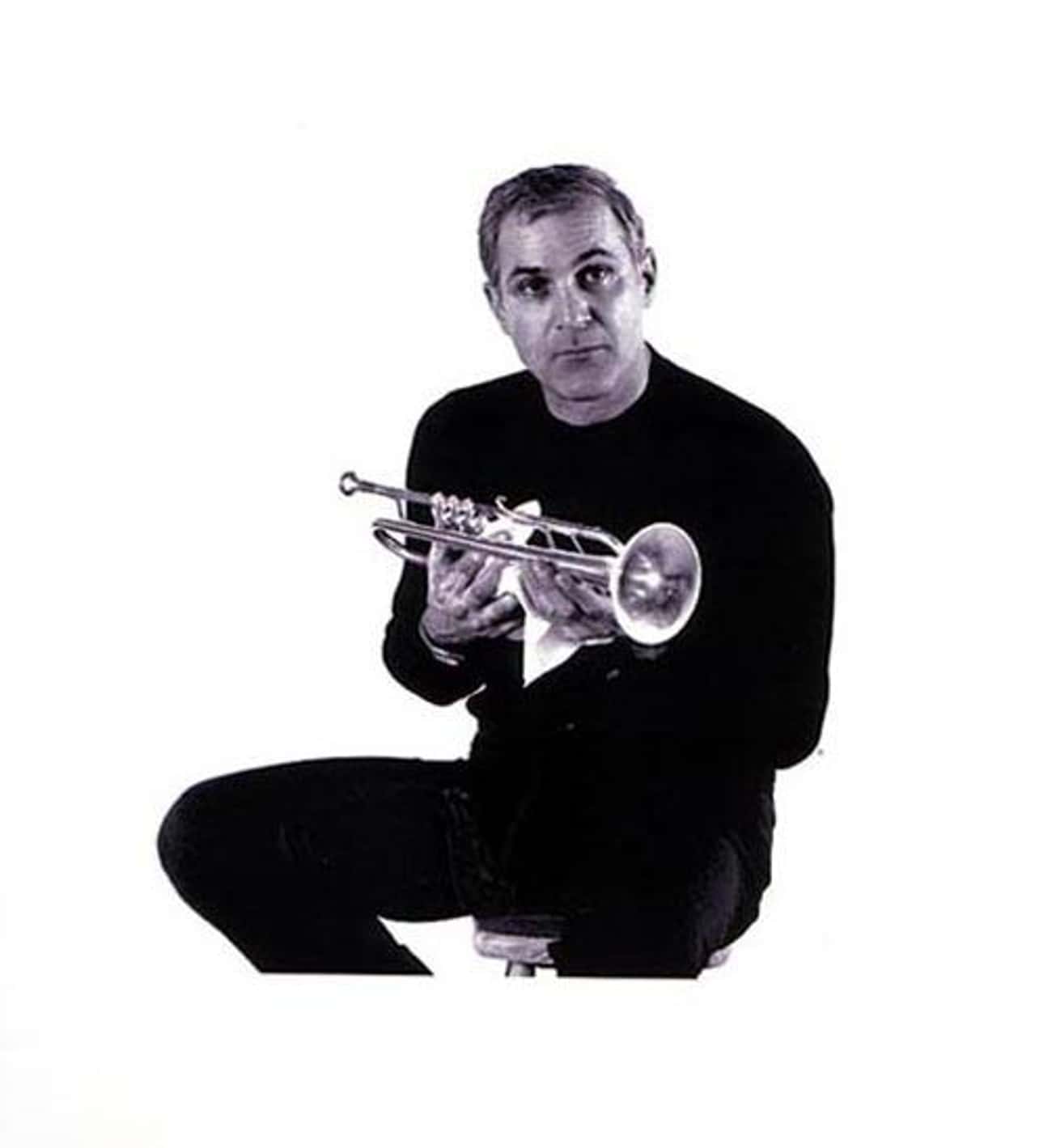Famous Male Trumpeters
List of famous male trumpeters, listed by their level of prominence with photos when available. This greatest male trumpeters list contains the most prominent and top males known for being trumpeters. There are thousand of males working as trumpeters in the world, but this list highlights only the most notable ones. Historic trumpeters have worked hard to become the best that they can be, so if you're a male aspiring to be a trumpeter then the people below should give you inspiration.
List ranges from Raymond Lee Brown to Kenny Dorham, plus much more.
While this isn't a list of all male trumpeters, it does answer the questions "Who are the most famous male trumpeters?" and "Who are the best male trumpeters?"- Photo: Glenn Francis / Wikimedia Commons / CC BY-SA 3.0Quincy Jones, a multi-talented American music impresario, has made an indelible mark in the world of entertainment. Born on March 14, 1933, in Chicago, Illinois, Jones discovered his passion for music at a young age and honed his skills to become one of the most influential figures in 20th-century popular culture. His journey from a struggling musician to a globally recognized producer is a testament to his exceptional talent and relentless determination. Jones' career spans six decades, during which he has worn many hats: that of a trumpeter, conductor, composer, record producer, and film producer. He started as a trumpeter and arranger for bandleader Lionel Hampton before moving on to work with some of the biggest names in the industry, including Frank Sinatra, Ella Fitzgerald, and Michael Jackson. Jones' collaboration with Jackson on the latter's album Thriller resulted in one of the best-selling records of all time. His ability to blend different musical styles and genres has earned him a staggering 79 Grammy Award nominations, 28 of which he won, setting a record for the most nominated artist in history. Apart from music, Quincy Jones has also made significant contributions to film and television. He composed scores for several films and was the first African American to be nominated for an Academy Award for Best Original Score for his work on the 1967 movie In Cold Blood. Jones was instrumental in producing the groundbreaking television series The Fresh Prince of Bel-Air, which launched Will Smith's acting career. In recognition of his outstanding contributions, Jones was honored with the Jean Hersholt Humanitarian Award by the Academy of Motion Picture Arts and Sciences. Quincy Jones' extraordinary life and career have left an enduring legacy that continues to inspire generations of artists worldwide.More Quincy Jones
- Dig Deeper...Famous Friends of Michael Jackson
- #860 of 1,151 onThe Greatest Musical Artists of All Time
- #1677 of 3,183 onThe Most Influential People Of All Time
- Photo: Jonathan Leibson / Getty ImagesMichael Peter Balzary, known professionally as Flea, is a multi-talented individual who has made his name in the world of music, acting, and philanthropy. Born on October 16, 1962 in Melbourne, Australia, Flea moved to New York at the age of four and later to Los Angeles. It was there that he would develop a passion for music, eventually becoming an iconic bassist and co-founding member of the Red Hot Chili Peppers, a band that would go on to have significant global success. Flea's journey into music was unconventional. He initially pursued trumpet-playing, inspired by jazz musicians such as Miles Davis and Dizzy Gillespie, before switching to bass during his high school years. This transition was pivotal, leading to the formation of the Red Hot Chili Peppers with high school friends Anthony Kiedis, Hillel Slovak, and Jack Irons in 1983. The band's fusion of funk, punk, and rock was unique, propelling them to significant popularity. Flea's energetic and inventive bass-playing style became a defining feature of the band's sound. Over the decades, despite lineup changes and challenges, the band has released numerous chart-topping albums, winning six Grammy Awards. Aside from music, Flea has also ventured into acting, appearing in films such as My Own Private Idaho, The Big Lebowski, and Baby Driver. Additionally, he is a committed philanthropist. In 2001, he established the Silverlake Conservatory of Music in Los Angeles, a non-profit organization that provides affordable music education to local communities. Despite his multifaceted career, Flea remains dedicated to his art, consistently showcasing a relentless passion for both music and life.More Flea
- #1 of 165 onThe Best Rock Bassists of All Time
- #46 of 86 onThe Best Singers Who Only Need To Go By One Name
- #40 of 117 onThe Druggiest Rock Stars of All Time
- Photo: Herbert Behrens/Anefo / Wikimedia Commons / Public domainLouis Armstrong, an iconic figure in the world of jazz, was born on August 4, 1901, in New Orleans, Louisiana, a city known as the birthplace of jazz. Raised in a challenging environment marked by poverty, Armstrong had a tough upbringing that was far from ideal. However, his humble beginnings did not deter him from pursuing his passion for music. His journey into music started when he was just a child, playing a tin horn on the streets of New Orleans. A local Jewish family, the Karnofskys, who recognized his musical talent and gave him a real trumpet, significantly influenced his early life. Armstrong's career took a significant turn when he joined the "King Oliver Creole Jazz Band" in 1922. His unique style of play, characterized by creative improvisations, rhythmic innovation, and a distinctive gravelly voice, quickly made him a standout performer. He moved to Chicago in the mid-1920s, where he made some of his most influential recordings with his bands the Hot Five and the Hot Seven. These recordings showcased Armstrong's ability to transform jazz from a group-oriented folk music into an art form that emphasized solo performance. Despite facing racial discrimination throughout his life, Armstrong's influence transcended the boundaries of race and culture. He toured extensively in the 1930s and 1940s, earning the nickname "Ambassador Satch" and becoming one of the first African American entertainers to achieve widespread popularity among both white and black audiences. With hits like "What a Wonderful World" and "Hello, Dolly!", Armstrong left an indelible mark on the music industry. He passed away on July 6, 1971, but his legacy continues to inspire generations of musicians across the globe.More Louis Armstrong
- Dig Deeper...320 Famous Leo Celebrities
- #36 of 557 onThe 250+ Best Singers Of All Time, Ranked
- #162 of 200 onThe Coolest Actors Ever
- Photo: Metaweb (FB) / Public domainWynton Learson Marsalis (born October 18, 1961) is an American virtuoso trumpeter, composer, teacher, and artistic director of Jazz at Lincoln Center. He has promoted classical and jazz music, often to young audiences. Marsalis has been awarded nine Grammy Awards and his Blood on the Fields was the first jazz composition to win the Pulitzer Prize for Music. He is the son of jazz musician Ellis Marsalis Jr. (pianist), grandson of Ellis Marsalis Sr., and brother of Branford (saxophonist), Delfeayo (trombonist), and Jason (drummer). Marsalis is the only musician to win a Grammy Award in jazz and classical during the same year.More Wynton Marsalis
- #7 of 93 onThe 95 Best Trumpet Players Of All Time, Ranked
- #2 of 63 onThe Best Trumpeters in the World
- #8 of 57 onThe Best Saxophonists in the World
- Photo: Metaweb (FB) / CC-BY-SA-2.0Miles Davis, born in Alton, Illinois on May 26, 1926, was a seminal figure in the landscape of American music. Known for his innovation and artistic vision, Davis shaped the course of jazz over his five-decade-long career, blending elements of rock, classical music, and funk into his compositions. Davis, a trumpeter, bandleader, and composer, is famed for his unique, muted style that revolutionized the genre by introducing modal playing—a stark contrast to the predominant bebop style of the 1940s. Davis' career commenced at the age of 18 when he moved to New York City to study at the Julliard School of Music, but soon dropped out to play professionally. He joined Charlie Parker's quintet, marking his emergence in the bebop scene. In 1959, Davis' album Kind of Blue was released, which is regarded as one of the most influential jazz albums ever recorded. The album introduced modal jazz improvising on a series of scales or modes rather than chord progressions to a broader audience. Throughout his career, Davis battled personal demons including drug addiction, yet he continually evolved his musical style. In the late 1960s, he pioneered jazz-rock fusion with the album Bitches Brew. The 1980s saw Davis incorporating hip-hop elements into his music, further showcasing his versatility and willingness to explore. Davis passed away in 1991, leaving behind an immense body of work that continues to influence generations of musicians. His legacy is encapsulated not only in the Grammy Awards, the Miles Davis Award at the Montreal Jazz Festival, and his induction into the Rock and Roll Hall of Fame but also in his enduring influence on the trajectory of jazz and popular music.More Miles Davis
- Dig Deeper...The 365+ Most Famous Geminis
- #36 of 1,151 onThe Greatest Musical Artists of All Time
- #110 of 240 onThe Greatest American Rock Bands
- Photo: Roberto Serra / Getty ImagesEnnio Morricone (November 10, 1928 – July 6, 2020) was an Italian composer, orchestrator, conductor, and trumpet player who wrote music in a wide range of styles. Morricone composed over 400 scores for cinema and television, as well as over 100 classical works. His score to The Good, the Bad and the Ugly (1966) is considered one of the most influential soundtracks in history. In 2016, Morricone received his first competitive Academy Award for his score to Quentin Tarantino's film The Hateful Eight, at the time becoming the oldest person ever to win a competitive Oscar. His other achievements included three Grammy Awards, three Golden Globes, six BAFTAs, ten David di Donatello, eleven Nastro d'Argento, two European Film Awards, the Golden Lion Honorary Award and the Polar Music Prize in 2010.More Ennio Morricone
- #105 of 252 onThe Best Classical Composers
- #141 of 1,151 onThe Greatest Musical Artists of All Time
- #135 of 188 onWhich Artist Would You Bring Back From The Dead To Write One More Song?
- John Birks "Dizzy" Gillespie (; October 21, 1917 – January 6, 1993) was an American jazz trumpeter, bandleader, composer, and singer.Gillespie was a trumpet virtuoso and improviser, building on the virtuoso style of Roy Eldridge but adding layers of harmonic and rhythmic complexity previously unheard in jazz. His combination of musicianship, showmanship, and wit made him a leading popularizer of the new music called bebop. His beret and horn-rimmed spectacles, his scat singing, his bent horn, pouched cheeks, and his light-hearted personality provided some of bebop's most prominent symbols.In the 1940s Gillespie, with Charlie Parker, became a major figure in the development of bebop and modern jazz.He taught and influenced many other musicians, including trumpeters Miles Davis, Jon Faddis, Fats Navarro, Clifford Brown, Arturo Sandoval, Lee Morgan, Chuck Mangione, and balladeer Johnny Hartman.Scott Yanow wrote, "Dizzy Gillespie's contributions to jazz were huge. One of the greatest jazz trumpeters of all time, Gillespie was such a complex player that his contemporaries ended up being similar to those of Miles Davis and Fats Navarro instead, and it was not until Jon Faddis's emergence in the 1970s that Dizzy's style was successfully recreated [....] Arguably Gillespie is remembered, by both critics and fans alike, as one of the greatest jazz trumpeters of all time".More Dizzy Gillespie
- #104 of 1,151 onThe Greatest Musical Artists of All Time
- #173 of 188 onWhich Artist Would You Bring Back From The Dead To Write One More Song?
- #3 of 93 onThe 95 Best Trumpet Players Of All Time, Ranked
- Herb Alpert (born March 31, 1935) is an American jazz musician most associated with the group variously known as Herb Alpert & the Tijuana Brass, Herb Alpert's Tijuana Brass, or TJB. Alpert is also a recording industry executive, the "A" of A&M Records, a recording label he and business partner Jerry Moss founded and eventually sold to PolyGram. Alpert also has created abstract expressionist paintings and sculpture over two decades, which are publicly displayed on occasion. Alpert and his wife, Lani Hall, are substantial philanthropists through the operation of the Herb Alpert Foundation. Alpert's musical accomplishments include five No. 1 albums and 28 albums total on the Billboard Album chart, nine Grammy Awards, fourteen platinum albums, and fifteen gold albums. Alpert has sold 72 million records worldwide. Alpert is the only recording artist to hit No. 1 on the U.S. Billboard Hot 100 pop chart as both a vocalist ("This Guy's in Love with You", 1968) and an instrumentalist ("Rise", 1979).More Herb Alpert
- #182 of 239 onRank the Rock N Roll Hall of Fame Inductees
- #57 of 93 onThe 95 Best Trumpet Players Of All Time, Ranked
- #23 of 63 onThe Best Trumpeters in the World
- Photo: Metaweb (FB) / Fair useSir Malcolm Henry Arnold (21 October 1921 – 23 September 2006) was an English composer. His works feature music in many genres, including a cycle of nine symphonies, numerous concertos, concert works, chamber music, choral music and music for brass band and wind band. He wrote extensively for the theatre, with five ballets specially commissioned by the Royal Ballet, as well as two operas and a musical. He also produced scores for more than a hundred films, among these The Bridge on the River Kwai (1957), for which he won an Oscar.
- Photo: Metaweb (FB) / Public domainChesney Henry Baker Jr. (December 23, 1929 – May 13, 1988) was an American jazz trumpeter and vocalist. Baker earned much attention and critical praise through the 1950s, particularly for albums featuring his vocals (Chet Baker Sings, It Could Happen to You). Jazz historian Dave Gelly described the promise of Baker's early career as "James Dean, Sinatra, and Bix, rolled into one." His well-publicized drug habit also drove his notoriety and fame. Baker was in and out of jail frequently before enjoying a career resurgence in the late 1970s and '80s.More Chet Baker
- #702 of 1,151 onThe Greatest Musical Artists of All Time
- #13 of 93 onThe 95 Best Trumpet Players Of All Time, Ranked
- #31 of 121 onThe 100+ Greatest Jazz Musicians, Ranked
- Photo: Metaweb (FB) / CC-BY-2.0Joseph Benjamin Wilder was an American jazz trumpeter, bandleader, and composer. Wilder was awarded the Temple University Jazz Master's Hall of Fame Award in 2006. The National Endowment for the Arts honored him with its highest honor in jazz, the NEA Jazz Masters Award for 2008.
- James Lloyd Morrison AM (born 11 November 1962) is an Australian jazz musician. Although his main instrument is trumpet, he has also performed on trombone, tuba, euphonium, flugelhorn, saxophone, clarinet, double bass, guitar, and piano. He is a composer, writing jazz charts for ensembles of various sizes and proficiency levels. He composed and performed the opening fanfare at the Sydney 2000 Olympic Games. In 2009, he joined Steve Pizzati and Warren Brown as a presenter on Top Gear Australia. At the ARIA Music Awards of 2010 Morrison and a cappella group, The Idea of North, won Best Jazz Album, for their collaboration on Feels Like Spring. In 2012 Morrison was appointed as Artistic Director of the Queensland Music Festival for the 2013 and 2015 festivals. He was inducted into the Graeme Bell Hall of Fame 2013 at the Australian Jazz Bell Awards. In July 2013 he conducted the World's Largest Orchestra in Brisbane's Suncorp Stadium, consisting of 7,224 musicians. In March 2015 Morrison opened the James Morrison Academy of Music in Mount Gambier, South Australia – a tertiary level, dedicated jazz school offering a degree in jazz performance.More James Morrison
- #16 of 93 onThe 95 Best Trumpet Players Of All Time, Ranked
- #4 of 63 onThe Best Trumpeters in the World
- #22 of 54 onThe Best Jazz Trombonists in the World
Jim Rotondi
James Robert Rotondi (born 28 August 1962) is an American jazz trumpeter, educator, and conductor.The youngest of five siblings, Rotondi was born in Butte, Montana. He played in New York City for twenty years before moving to Austria. He has taught at the University for Music and Dramatic Arts in Graz, Austria. He has released over ten albums as a leader for Sharp Nine, Criss Cross, Posi-Tone, and Smoke Sessions Records. He has played on over eighty albums as a sideman. He has performed and recorded with Ray Charles, Lionel Hampton, the Toshiko Akiyoshi Jazz Orchestra, Lou Donaldson, Curtis Fuller, Benny Sharoni, Eric Alexander, and George Coleman. Rotondi has led a quintet, which features vibraphonist Joe Locke, and an electric band with David Hazeltine called Full House, which uses electronic sound on his trumpet and a variety of other electronic instruments. He is also a member of the group One for All. In 1984, while attending North Texas State University (University of North Texas), he won first place in the International Trumpet Guild's jazz trumpet competition.- Malcolm Boyd McNab is a trumpeter and player of other brass instruments, and a Los Angeles-based session musician who has performed on nearly 2000 film and television soundtracks.
- Photo: Metaweb (FB) / Public domainChristopher Stephen Botti ( BOH-tee; born October 12, 1962), is an American trumpeter and composer.In 2013, Botti won the Grammy Award in the Best Pop Instrumental Album category, for the album Impressions. He was also nominated in 2008 for his album Italia and received three nominations in 2010 for the live album Chris Botti In Boston. Four of his albums have reached the No. 1 position on the Billboard jazz albums chart. Coming to prominence with the 2001 recording of his Night Sessions album, Botti established a reputation as a versatile musician in both jazz and pop music for his ability to fuse both styles together.More Chris Botti
- Dig Deeper...List of Famous Radio Personalities
- #70 of 93 onThe 95 Best Trumpet Players Of All Time, Ranked
- #22 of 63 onThe Best Trumpeters in the World
- Tristan Frederick Allan Fry is a British drummer and percussionist. Fry began his career by joining the London Philharmonic Orchestra as a timpanist at the age of 17. He was a founder member of a number of ensembles, including the Nash, Fires of London and the London Sinfonietta. He also worked as a session musician with various pop artists such as The Beatles, Frank Sinatra, Olivia Newton-John, John Martyn, Elton John and David Essex, among others. Fry was percussionist on The Beatles' "A Day In The Life", contributing timpani to the song's two orchestral climaxes. He also played in various other recordings including TV and movie soundtracks, and as Tristan was the timpanist with the Academy of St. Martin in the Fields Orchestra he has performed on many of their recorded works and concerts. From 1979 - 1995 he was the drummer with the progressive rock group Sky with John Williams, Kevin Peek, Francis Monkman, Herbie Flowers and later Steve Grey when Monkman left to pursue other projects. It was during this period that he attained a reputation as a live drummer, with a revolving double 'Premier' Kit, long drum solos in tracks such as "Hotta", "Meheeco" and "Son of Hotta".
- Humphrey Richard Adeane Lyttelton (23 May 1921 – 25 April 2008), also known as Humph, was an English jazz musician and broadcaster from the aristocratic Lyttelton family. Having taught himself the trumpet at school, Lyttelton became a popular figure of the trad jazz revival, leading his own eight-piece band, which recorded a hit single, "Bad Penny Blues", in 1956. As a broadcaster, he presented BBC Radio 2's The Best of Jazz for forty years, and hosted the comedy panel game I'm Sorry I Haven't a Clue on Radio 4, becoming the UK's oldest panel game host. Lyttelton was also a cartoonist, collaborating on the long-running Flook series in the Daily Mail, and a calligrapher and president of The Society for Italic Handwriting.More Humphrey Lyttelton
- Dig Deeper...Famous People Who Died in England
- And Deeper...Famous People Who Died Of Aortic Aneurysm
- #5 of 19 onThe Best Trad Jazz Artists
- Photo: Henry Diltz / Getty ImagesBennett Lester Carter (August 8, 1907 – July 12, 2003) was an American jazz saxophonist, clarinetist, trumpeter, composer, arranger, and bandleader. With Johnny Hodges, he was a pioneer on the alto saxophone. From the beginning of his career in the 1920s he was a popular arranger, having written charts for Fletcher Henderson's big band that shaped the swing style. He had an unusually long career that lasted into the 1990s. During the 1980s and '90s, he was nominated for eight Grammy Awards, which included receiving a Lifetime Achievement Award.More Benny Carter
- #36 of 49 onThe Greatest Saxophonists of All Time
- #28 of 69 onThe Greatest Jazz Saxophonists of All Time
- #18 of 20 onThe Greatest Swing Jazz Musicians of All Time
- Michael Yechiel Sachs (Hebrew: מיכאל יחיאל זַקש; 3 September 1808 – 31 January 1864) was a German rabbi from Groß-Glogau, Silesia.
- Photo: Metaweb (FB) / Public domainCharles Joseph "Buddy" Bolden (September 6, 1877 – November 4, 1931) was an African-American cornetist who was regarded by contemporaries as a key figure in the development of a New Orleans style of ragtime music, or "jass", which later came to be known as jazz.More Buddy Bolden
- #471 of 1,151 onThe Greatest Musical Artists of All Time
- #82 of 93 onThe 95 Best Trumpet Players Of All Time, Ranked
- #11 of 59 onThe Greatest Cornetists of All Time
- Bill Chase (October 20, 1934 – August 9, 1974) was an American trumpeter and leader of the jazz-rock band Chase.More Bill Chase
- #28 of 93 onThe 95 Best Trumpet Players Of All Time, Ranked
- #64 of 307 onFamous People Who Died in Plane Crashes
- #19 of 20 onRock Stars and Bands that Died in Plane Crashes
- Photo: Metaweb (FB) / CC-BYNeal Paul Hefti (October 29, 1922 – October 11, 2008) was an American jazz trumpeter, composer, and arranger. He wrote music for The Odd Couple movie and TV series and for the Batman TV series. He began arranging professionally in his teens, when he wrote charts for Nat Towles. He became a prominent composer and arranger while playing trumpet for Woody Herman; while working for Herman he provided new arrangements for "Woodchopper's Ball" and "Blowin' Up a Storm" and composed "The Good Earth" and "Wild Root". After leaving Herman's band in 1946, Hefti concentrated on arranging and composing, although he occasionally led his own bands. He is especially known for his charts for Count Basie such as "Li'l Darlin'" and "Cute".More Neal Hefti
- #33 of 54 onThe Best Musical Artists From Nebraska
- #27 of 67 onThe Best Big Bands of All Time
- #149 of 216 onFamous People Buried at Forest Lawn Memorial Park
- Photo: Metaweb (FB) / Fair useLee Morgan (July 10, 1938 – February 19, 1972) was an American jazz trumpeter and composer.One of the key hard bop musicians of the 1960s, Morgan came to prominence in his late teens, recording on John Coltrane's Blue Train (1957) and with the band of drummer Art Blakey before launching a solo career. Morgan stayed with Blakey until 1961 and started to record as leader soon after. His song "The Sidewinder", on the album of the same name, became a surprise crossover hit on the pop and R&B charts in 1964, while Morgan's recordings found him touching on other styles of music as his artistry matured. Soon after The Sidewinder was released, Morgan rejoined Blakey for a short period. After leaving Blakey for the final time, Morgan continued to work prolifically as both a leader and a sideman with the likes of Hank Mobley and Wayne Shorter, becoming a cornerstone of the Blue Note label.Morgan's career was cut short at the age of 33 when his common-law wife Helen shot and killed him following a confrontation at Slug's Saloon, in New York City.More Lee Morgan
- Dig Deeper...Famous People Who Were Murdered
- #18 of 93 onThe 95 Best Trumpet Players Of All Time, Ranked
- #37 of 121 onThe 100+ Greatest Jazz Musicians, Ranked
- Photo: Metaweb (FB) / CC-BY-2.0
Marvin Stamm
Marvin Stamm is an American bebop trumpeter. Stamm began on trumpet at age 12. He first attended college at, then known as, Memphis State University and then attended college at North Texas State University where he was a member of the world renowned One O'Clock Lab Band. Following this he played with Stan Kenton's Mellophonium Orchestra from 1961 to 1963, and with Woody Herman from 1965 to 1966. Following this he was in the Thad Jones and Mel Lewis Orchestra from 1966 to 1972, and with Benny Goodman from 1974 to 1975. In the 1970s he also began a decades-long career as a prolific studio and session musician. In the studio he has recorded with Paul McCartney, Average White Band, Bill Evans, Quincy Jones, Donald Fagen, Oliver Nelson, Duke Pearson, Wes Montgomery, Freddie Hubbard, Stanley Turrentine, Grover Washington, Jr., Patrick Williams, Michel Legrand, Lena Horne, Frank Foster, Paul Desmond, Frankie Valli, Deodato and George Benson. In the 1980s he played with John Lewis' American Jazz Orchestra, the Bob Mintzer Band, the George Gruntz Concert Jazz Band, Louie Bellson's Big Band and the band of composer Maria Schneider. - Nicholas Payton (born September 26, 1973) is an American trumpet player and multi-instrumentalist. A Grammy Award winner, he is from New Orleans, Louisiana. He is also a prolific and provocative writer who comments on a multitude of subjects, including music, race, politics, and life in America.More Nicholas Payton
- #36 of 63 onThe Best Trumpeters in the World
- #53 of 119 onWho Is The Most Famous Nick Or Nicholas In The World?
- #165 of 227 onFamous Jazz Trumpeters
- Photo: Metaweb (FB) / CC-BY-2.5
Jens Lindemann
Jens Lindemann, C.M., is a Canadian trumpet soloist now based in Los Angeles. He is the first classical brass soloist to be awarded the Order of Canada, the country's highest civilian honour. He played in the Canadian Brass from 1996 to 2001 and continues to play at major concert venues all over the world as an orchestral soloist, with chamber groups, jazz bands, and also as a recitalist and masterclinician. Lindemann is a professor with high distinction at UCLA and was a Distinguished Visiting Artist at Shenandoah Conservatory of Shenandoah University in Winchester, Virginia. He has also taught at the Banff Centre in Banff, Alberta. Named "Personality of the Year 2006" by the British magazine The Brass Herald, Lindemann also hosted the 33rd International Trumpet Guild conference at the Banff Centre in June 2008. He has given numerous world premières with orchestras including the North American première of Bernd Alois Zimmermann's concerto Nobody Knows with the Toronto Symphony. Lindemann studied at the Juilliard School of Music, McGill University, has received an honorary doctorate from McMaster University and is an honorary fellow of the Royal Conservatory of Music. - Rafael Méndez (March 26, 1906 – September 15, 1981) was a Mexican virtuoso solo trumpeter. He is known as the "Heifetz of the Trumpet."
- Photo: Metaweb (FB) / CC-BY-SA-2.0Rodney Begnaud (born October 12, 1970) is an American professional wrestler mixed martial artist and former Marine, better known by his ring name Rodney Mack. He is best known for his time in World Wrestling Entertainment from 2002 to 2004.
- Photo: Metaweb / CC-BYLeon Bismark "Bix" Beiderbecke (March 10, 1903 – August 6, 1931) was an American jazz cornetist, pianist, and composer. Beiderbecke was one of the most influential jazz soloists of the 1920s, a cornet player noted for an inventive lyrical approach and purity of tone. His solos on seminal recordings such as "Singin' the Blues" and "I'm Coming, Virginia" (both 1927) demonstrate a gift for extended improvisation that heralded the jazz ballad style, in which jazz solos are an integral part of the composition. Moreover, his use of extended chords and an ability to improvise freely along harmonic as well as melodic lines are echoed in post-WWII developments in jazz. "In a Mist" (1927) is the best known of Beiderbecke's published piano compositions, and the only one that he recorded. His piano style reflects both jazz and classical (mainly impressionist) influences. All five of his piano compositions were published by Robbins Music during his lifetime. A native of Davenport, Iowa, Beiderbecke taught himself to play the cornet largely by ear, leading him to adopt a non-standard fingering technique that informed his unique style. He first recorded with Midwestern jazz ensemble The Wolverines in 1924, after which he played briefly for the Detroit-based Jean Goldkette Orchestra before joining Frankie "Tram" Trumbauer for an extended engagement at the Arcadia Ballroom in St. Louis, also under the auspices of Goldkette's organisation. Beiderbecke and Trumbauer joined Goldkette's main band at the Graystone Ballroom in Detroit in 1926. The band toured widely and famously played a set opposite Fletcher Henderson at the Roseland Ballroom in New York City in October 1926. He made his greatest recordings in 1927. The Goldkette band folded in September 1927 and, after briefly joining bass saxophone player Adrian Rollini's band in New York, Trumbauer and Beiderbecke joined America's most popular dance band: Paul Whiteman and his Orchestra. Beiderbecke's most influential recordings date from his time with Goldkette and Whiteman, although he also recorded under his own name and that of Trumbauer's. The Whiteman period marked a precipitous decline in his health due to his increasing use of alcohol. Treatment for alcoholism in rehabilitation centers, with the support of Whiteman and the Beiderbecke family, failed to stop his decline. He left the Whiteman band in 1929 and in the summer of 1931 he died in his Sunnyside, Queens, New York apartment at the age of 28.His death, in turn, gave rise to one of the original legends of jazz. In magazine articles, musicians' memoirs, novels, and Hollywood films, Beiderbecke has been envisaged as a Romantic hero, the "Young Man with a Horn" (a novel, later made into a movie starring Kirk Douglas, Lauren Bacall, Doris Day, and Hoagy Carmichael). His life has often been portrayed as that of a jazz musician who had to compromise his art for the sake of commercialism. Beiderbecke remains the subject of scholarly controversy regarding his full name, the cause of his death and the importance of his contributions to jazz. He composed or played on recordings that are jazz classics and standards such as "Davenport Blues", "In a Mist", "Copenhagen", "Riverboat Shuffle", "Singin' the Blues", and "Georgia On My Mind".More Bix Beiderbecke
- #409 of 1,151 onThe Greatest Musical Artists of All Time
- #35 of 93 onThe 95 Best Trumpet Players Of All Time, Ranked
- #1 of 59 onThe Greatest Cornetists of All Time
- Pete Candoli (born Walter Joseph Candoli; June 28, 1923 – January 11, 2008) was an American jazz trumpeter and the brother of trumpeter Conte Candoli. He played with the big bands of Woody Herman, Stan Kenton, and many others, and worked extensively in the studios of the recording and television industries.


